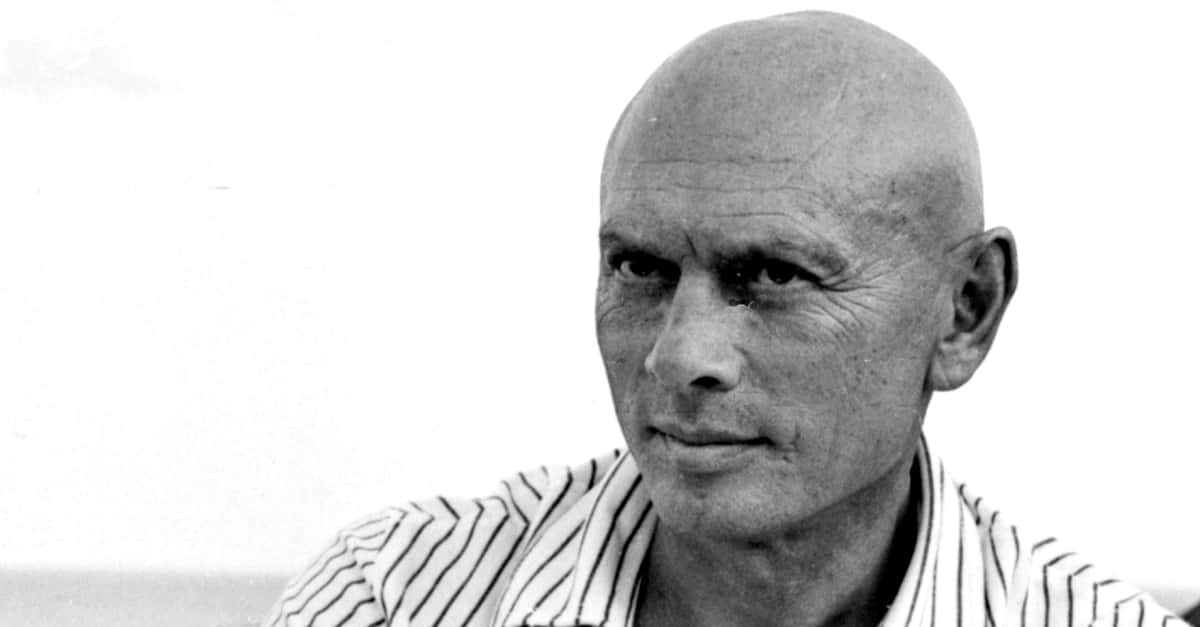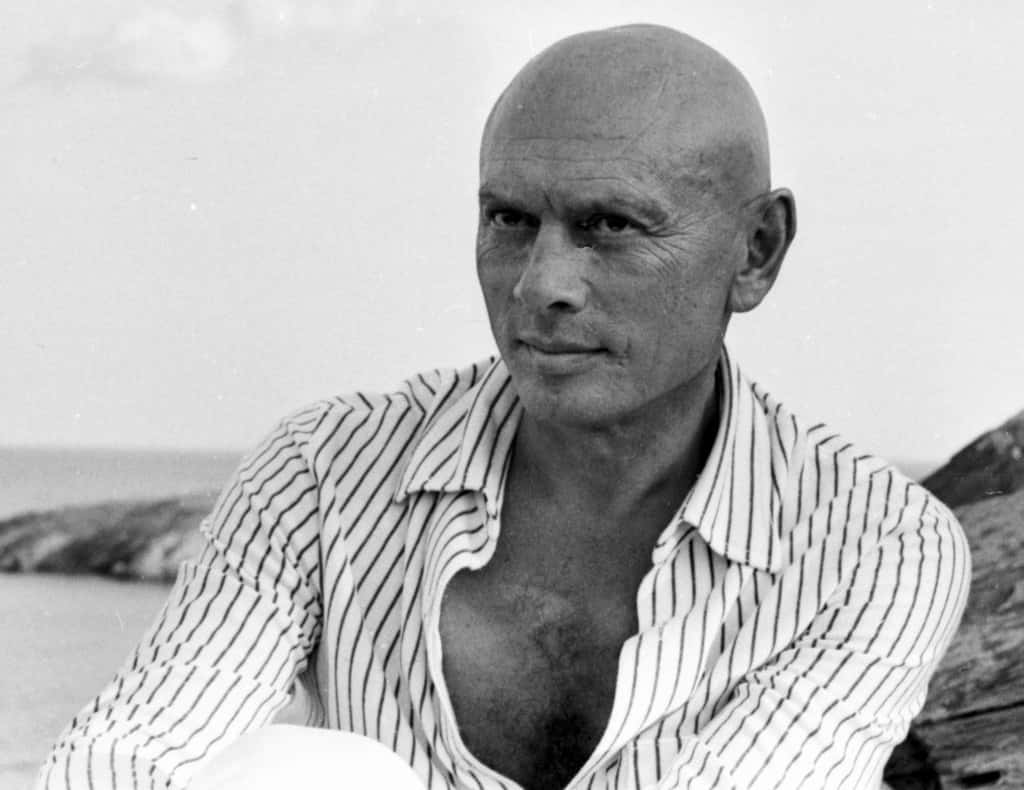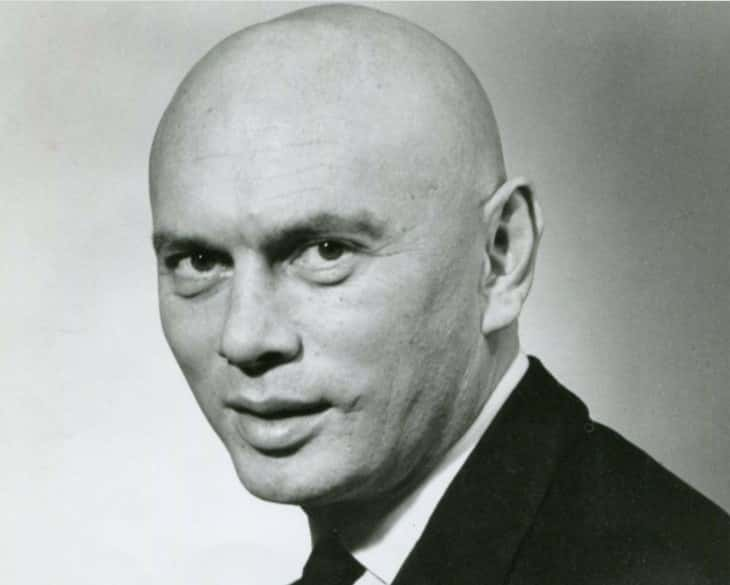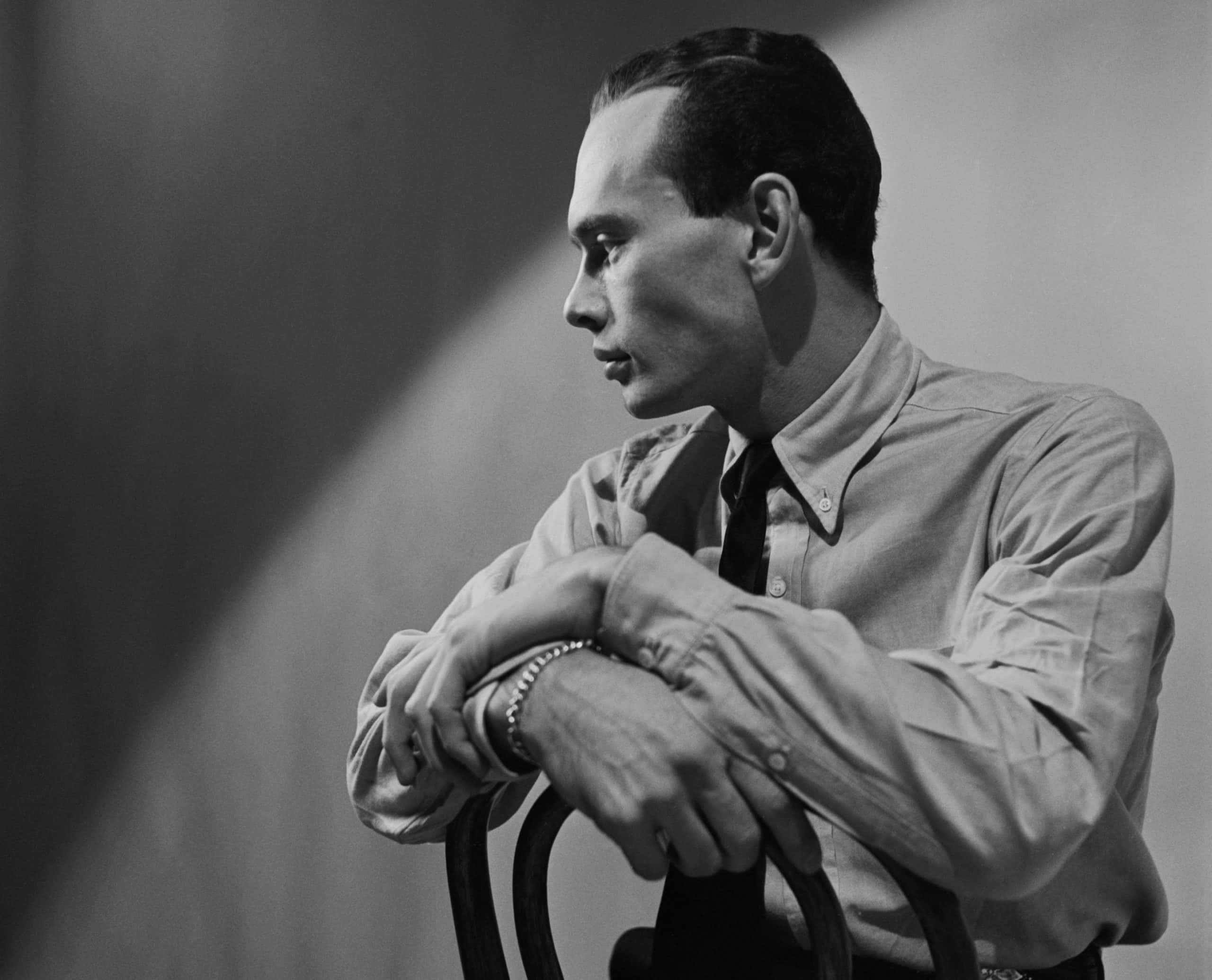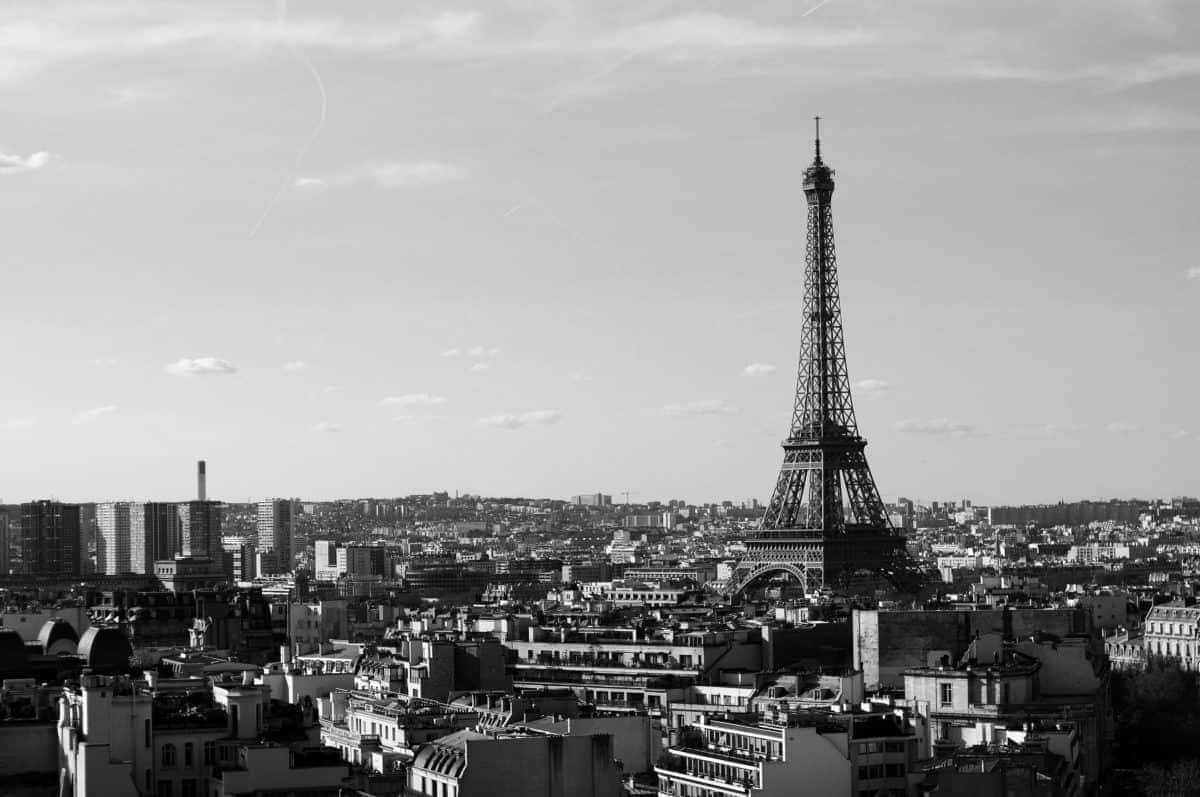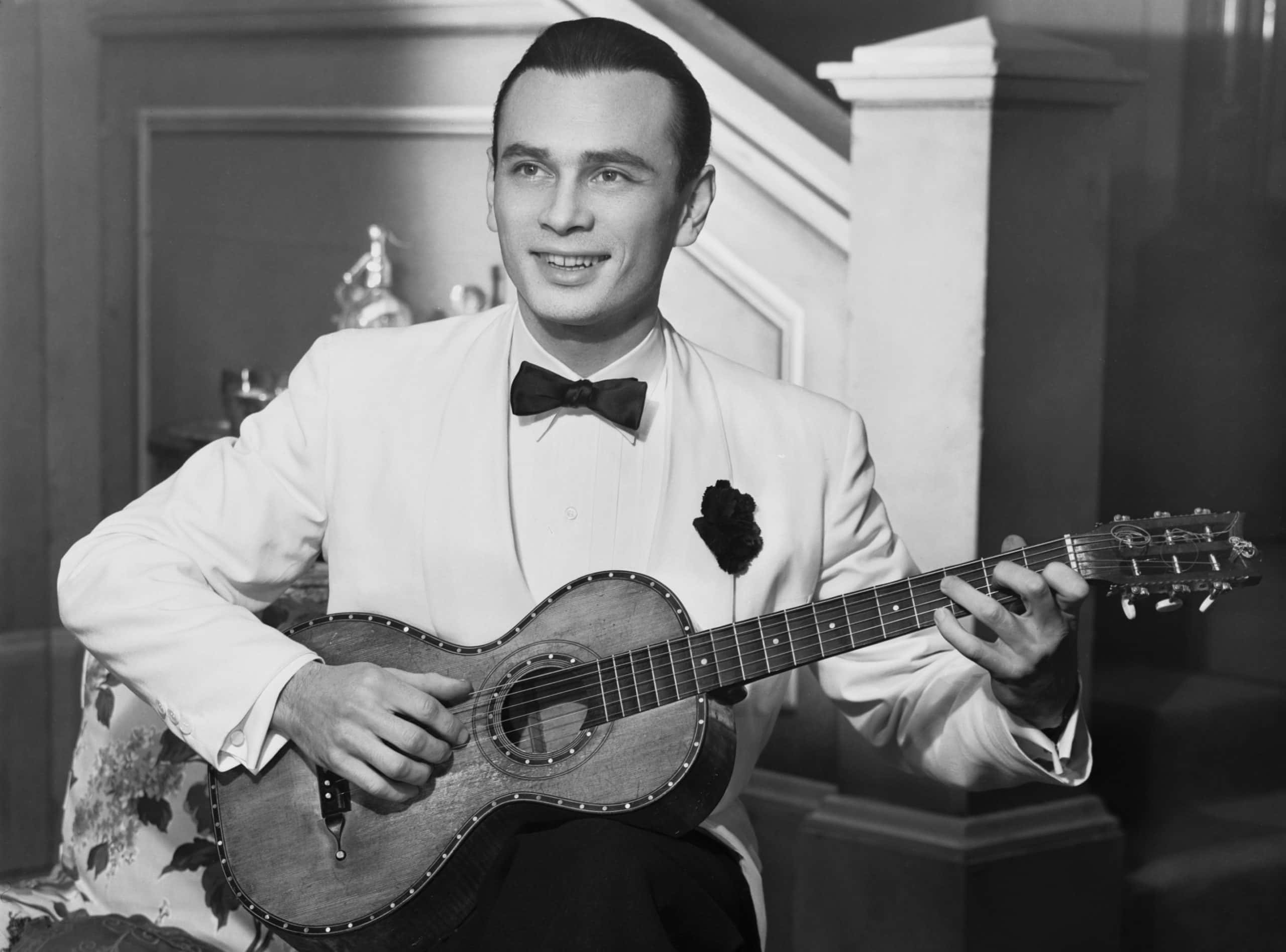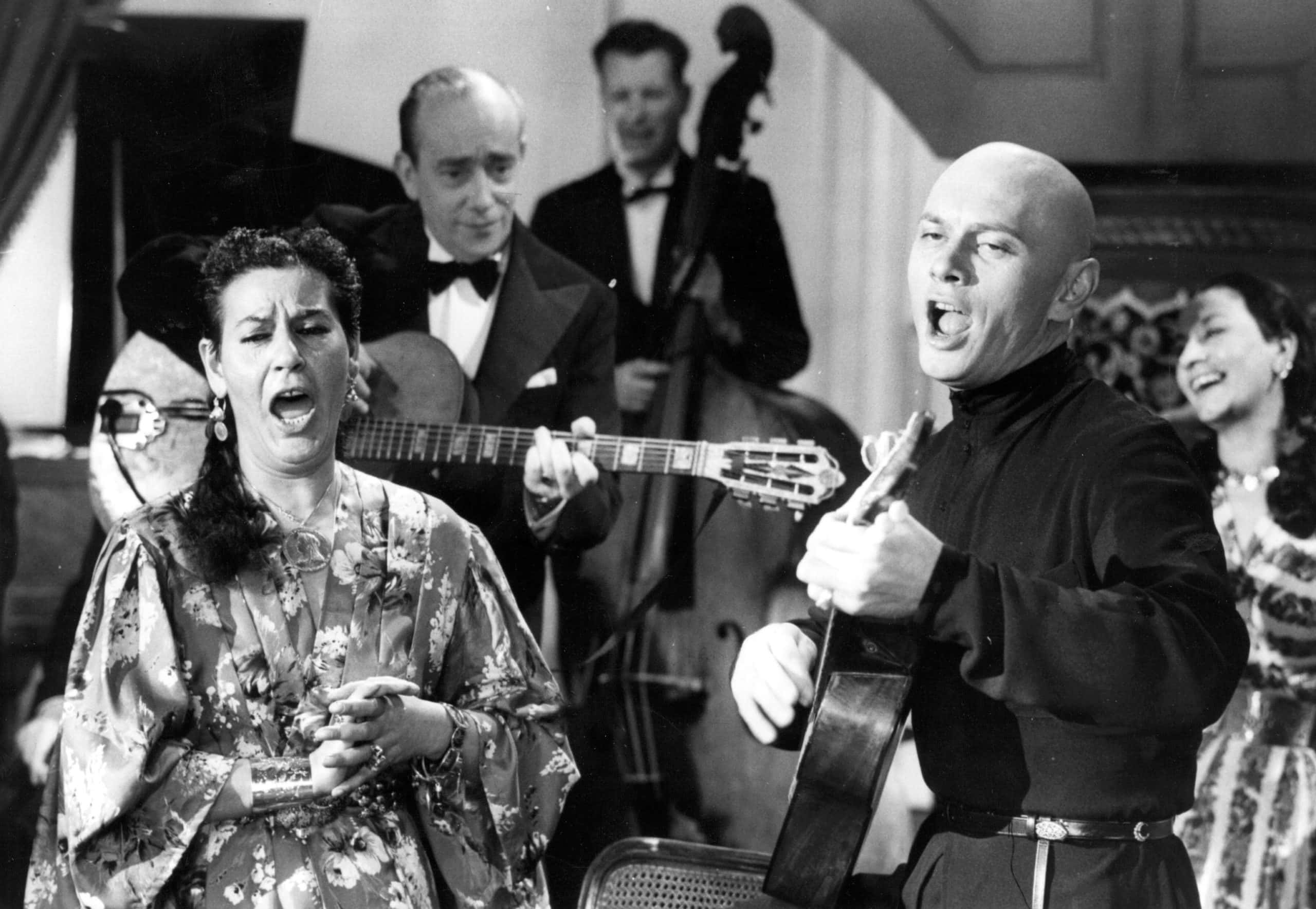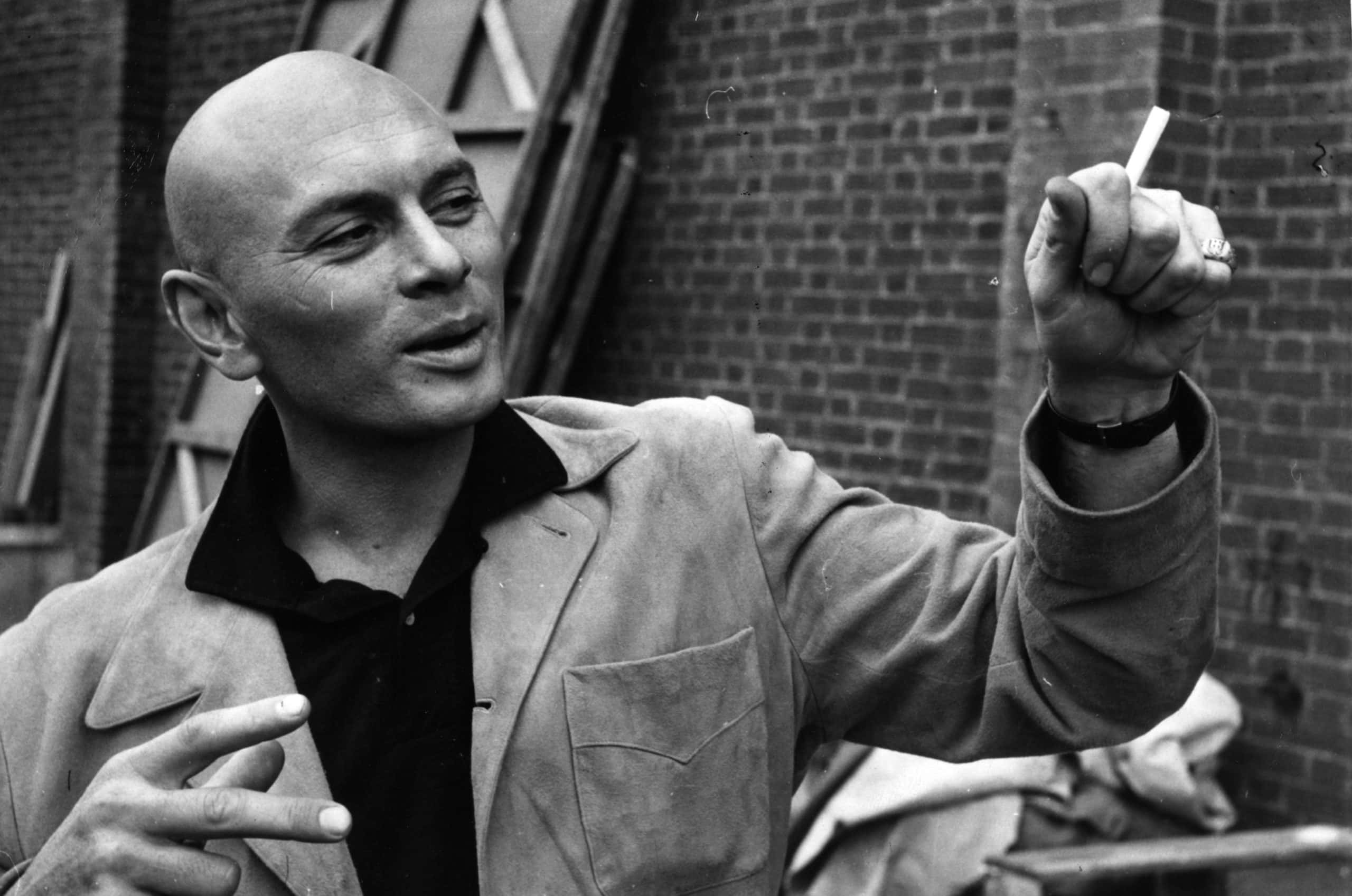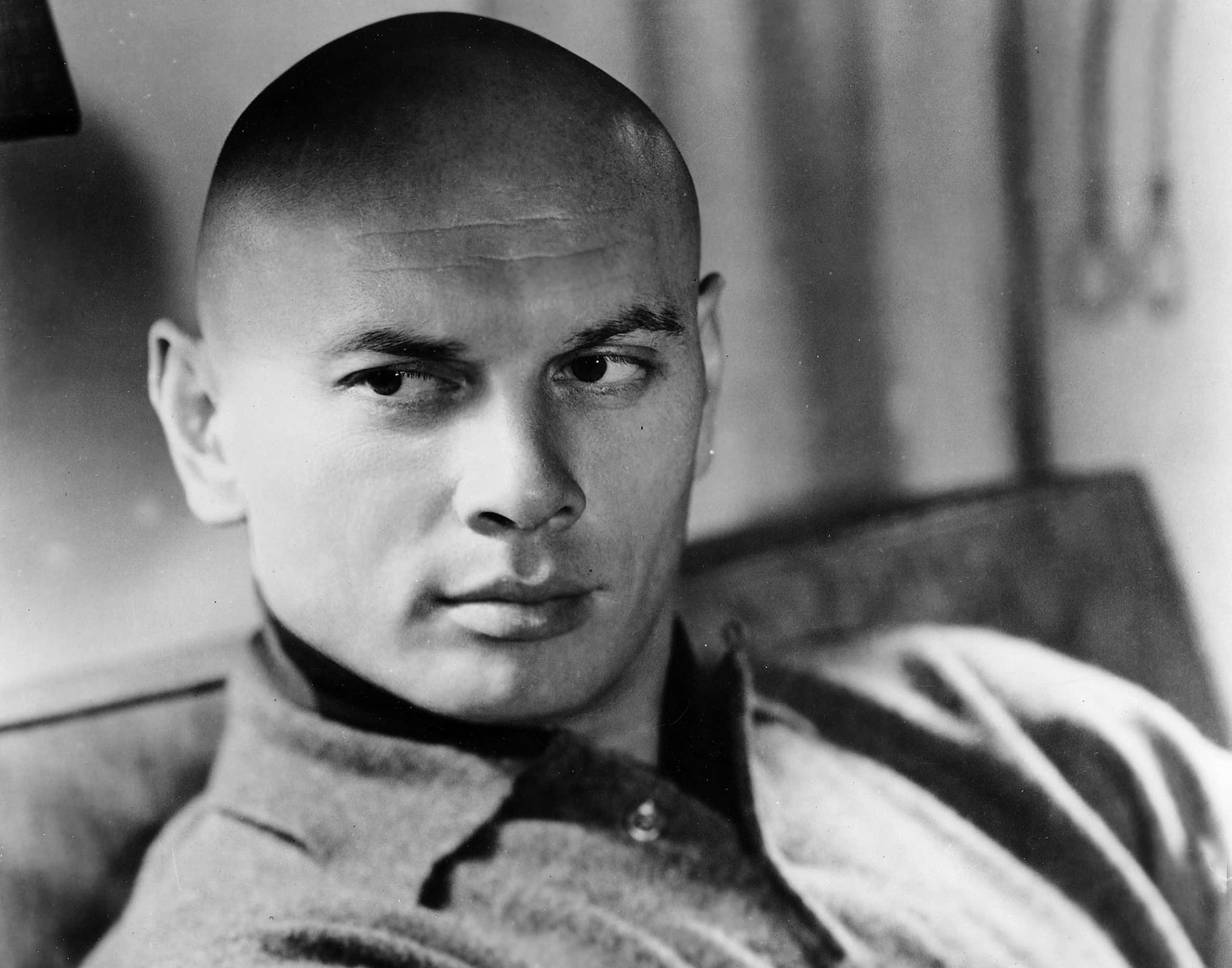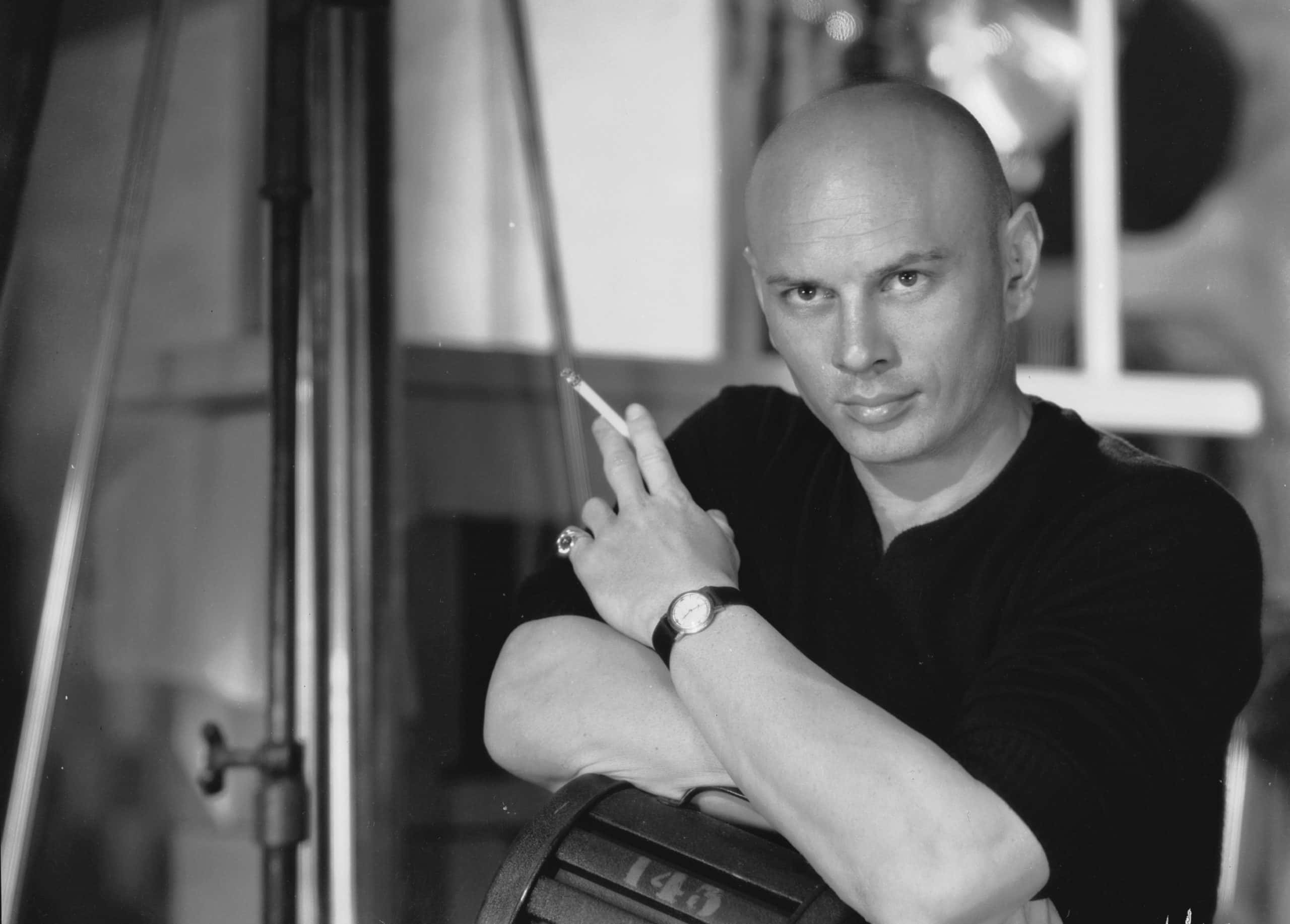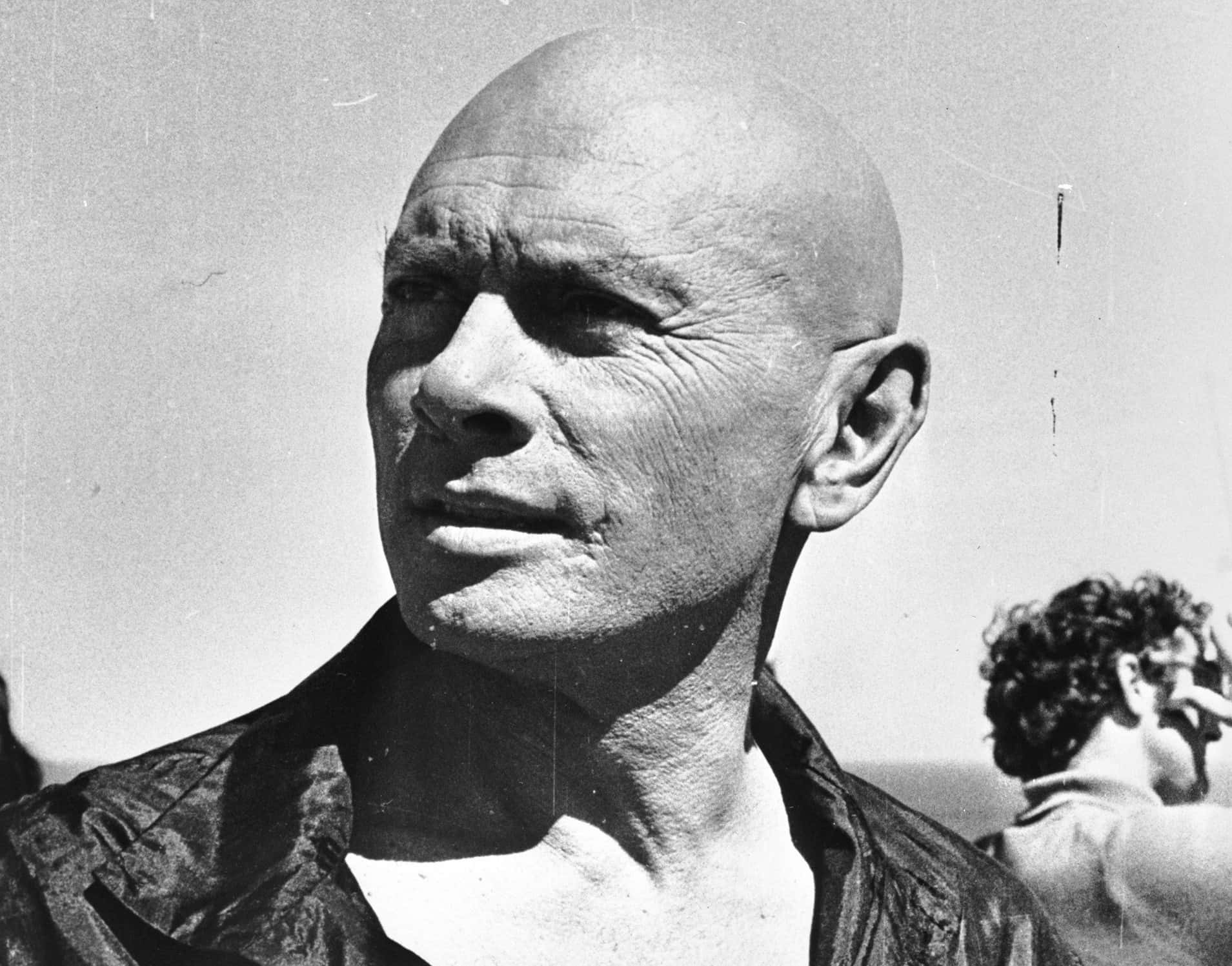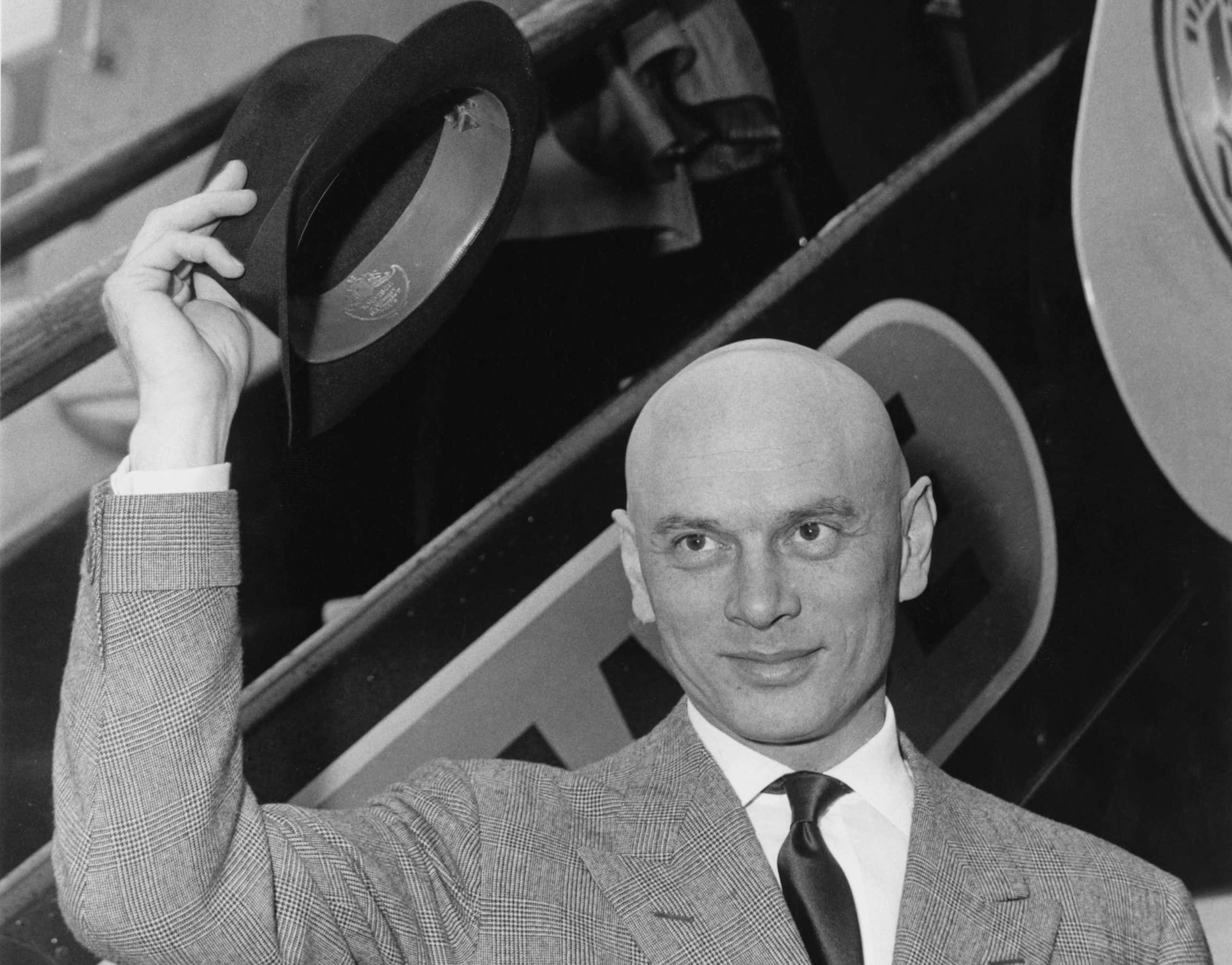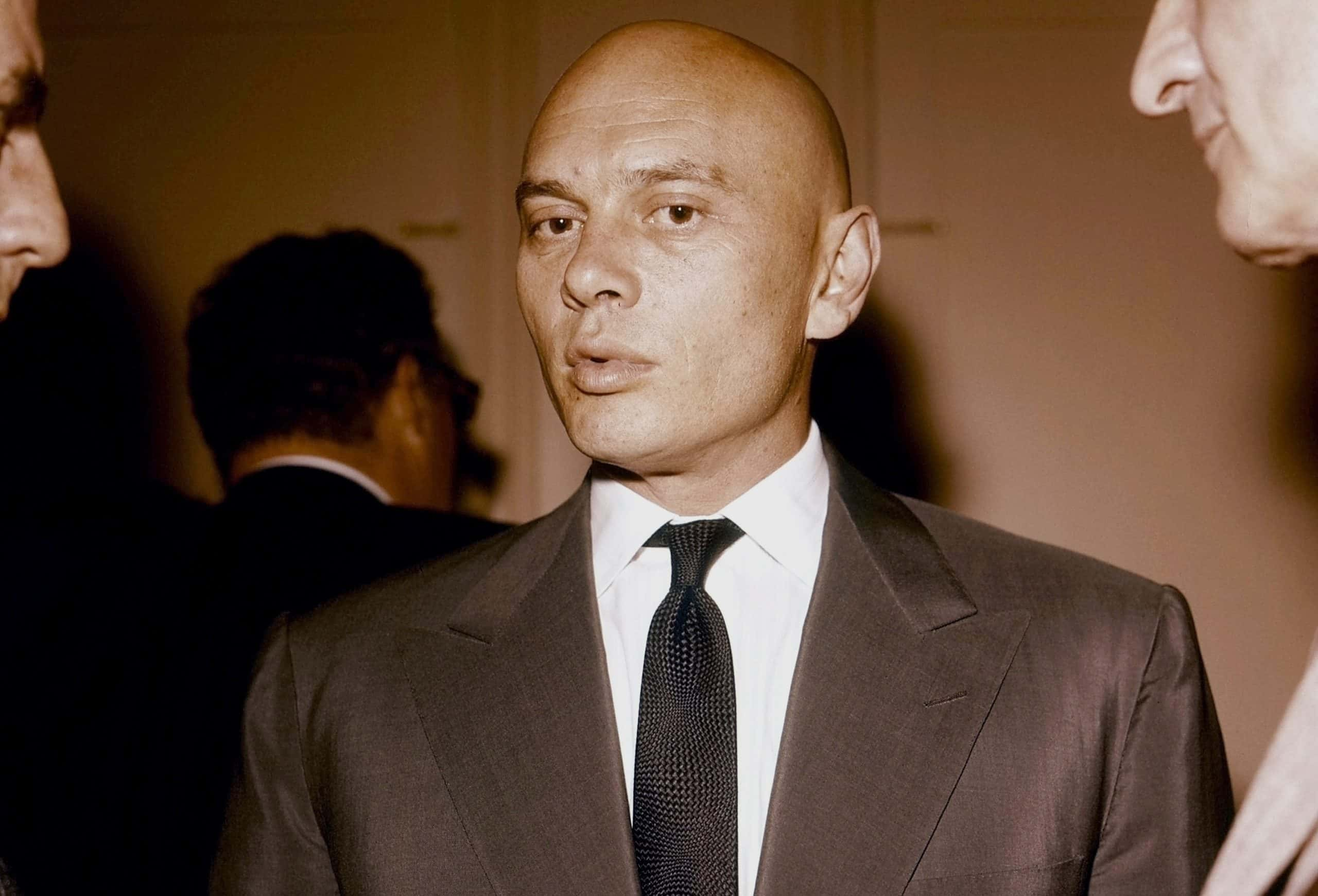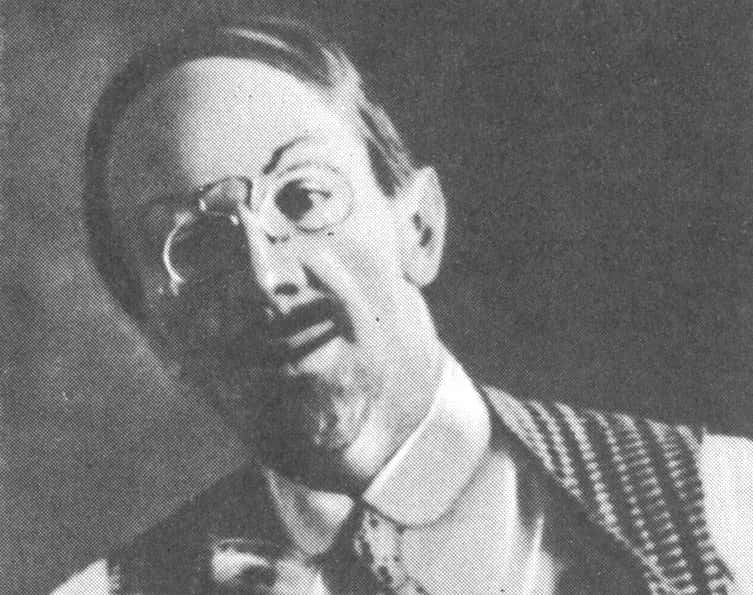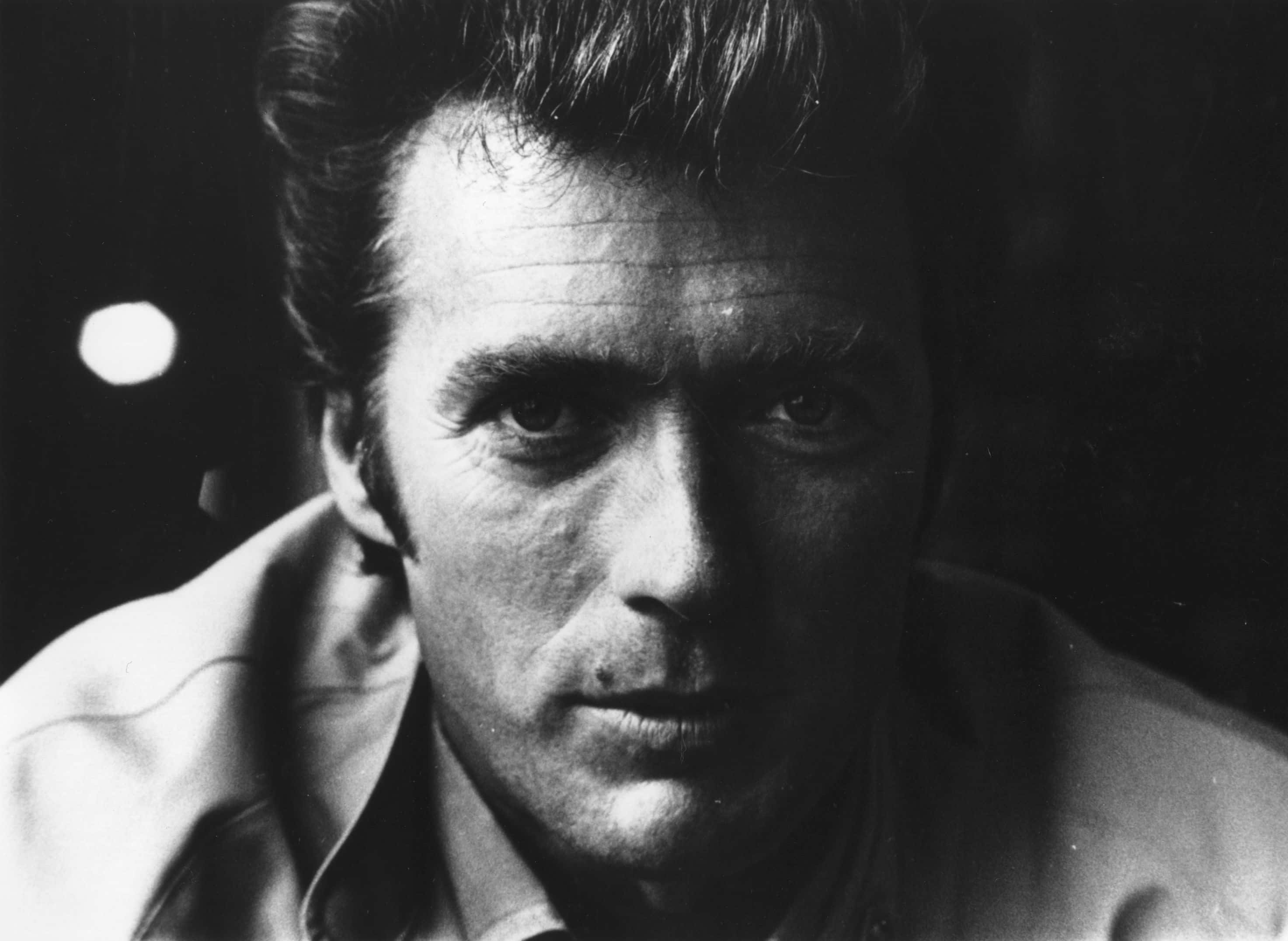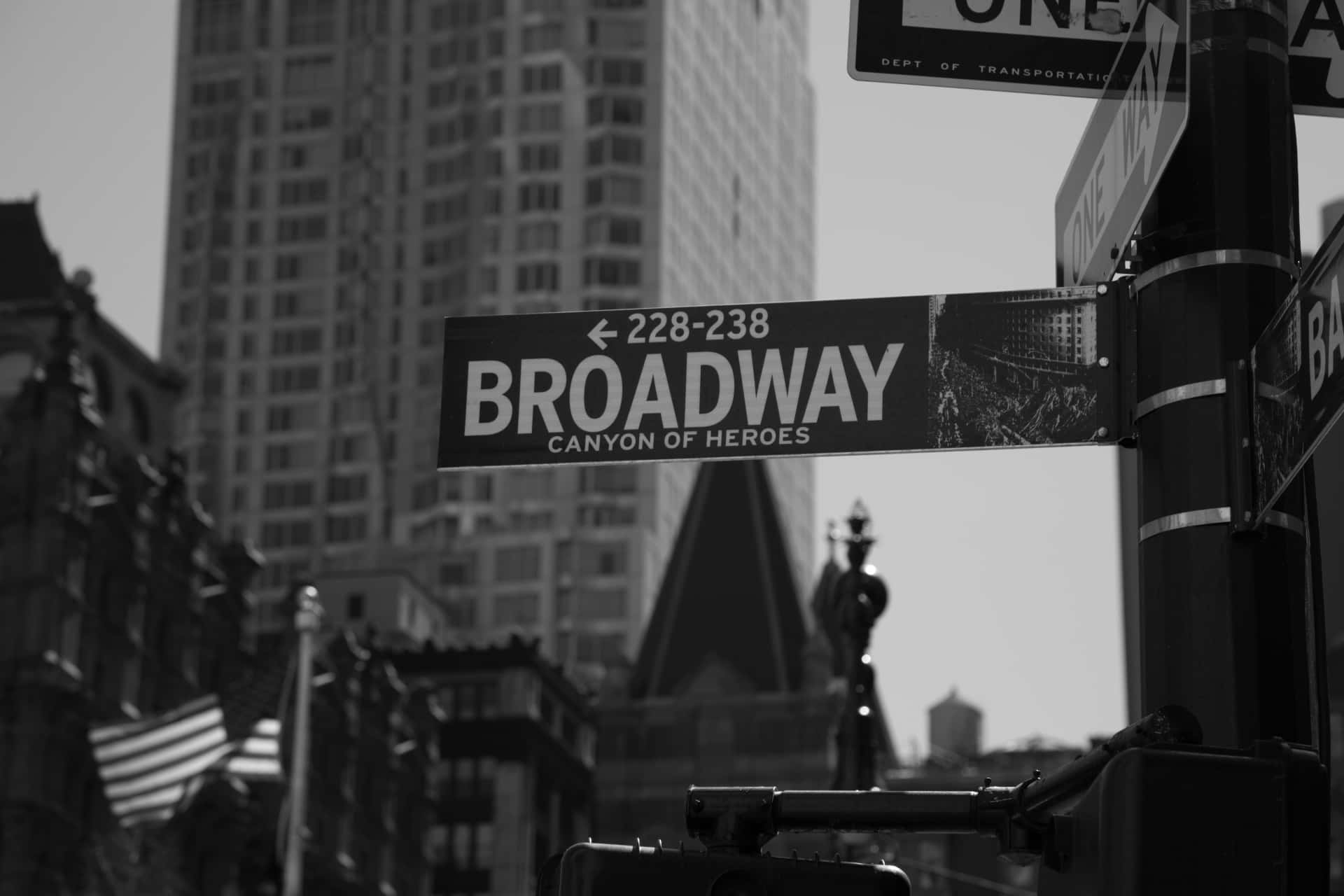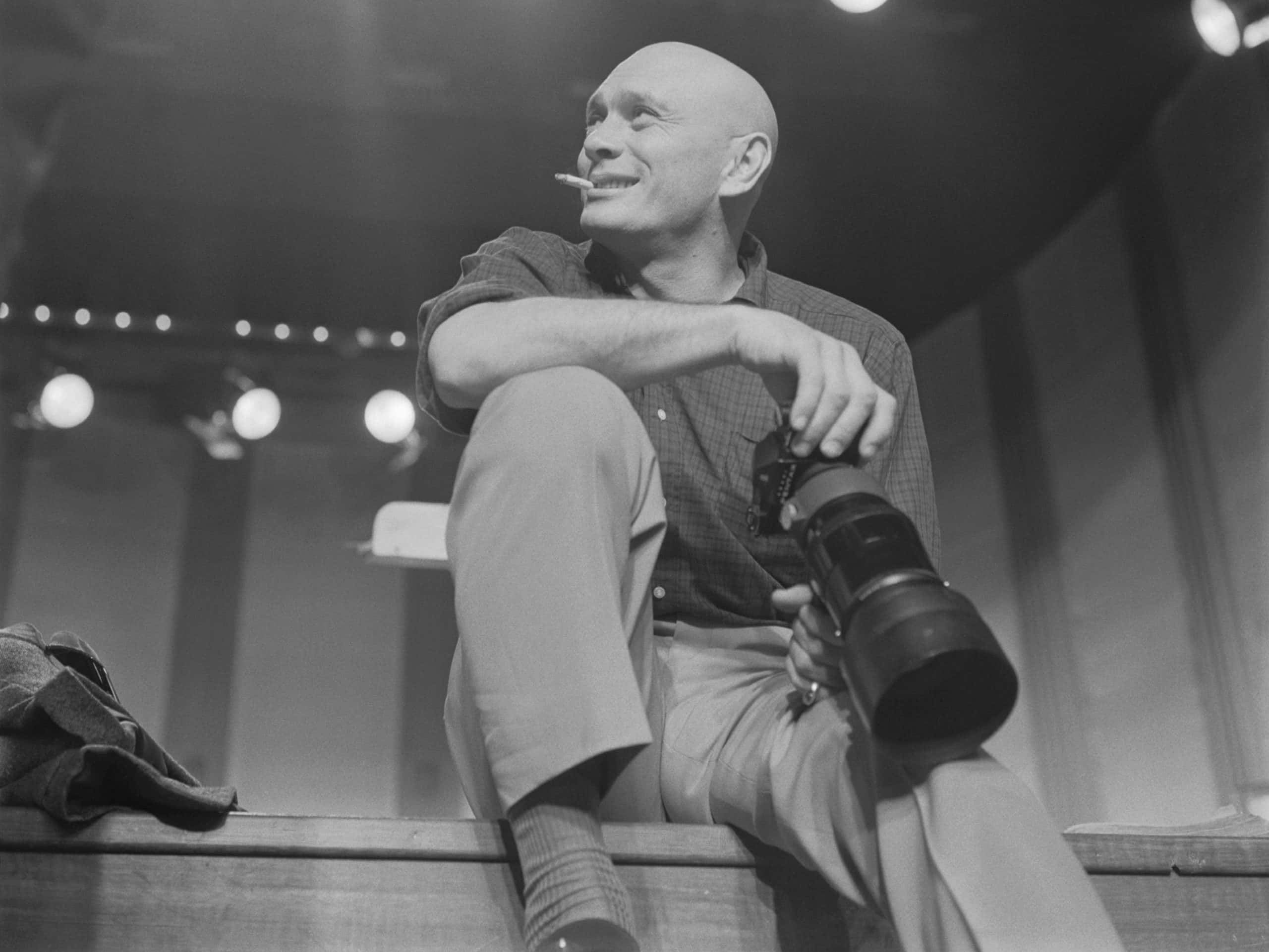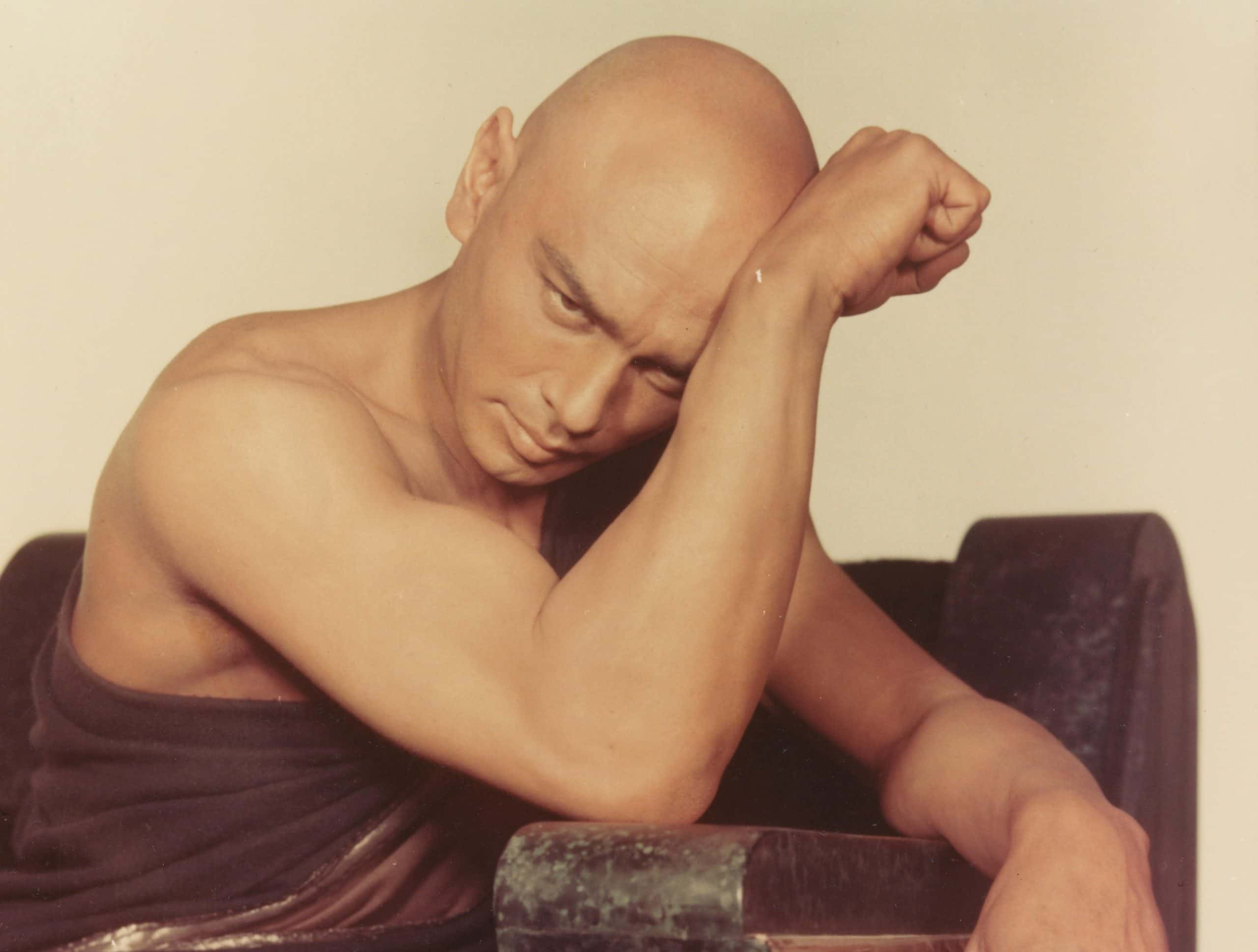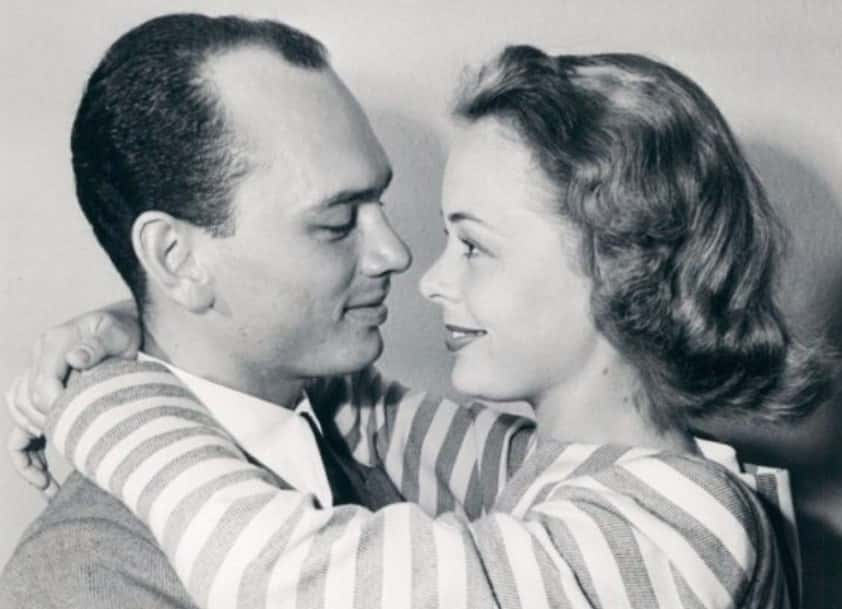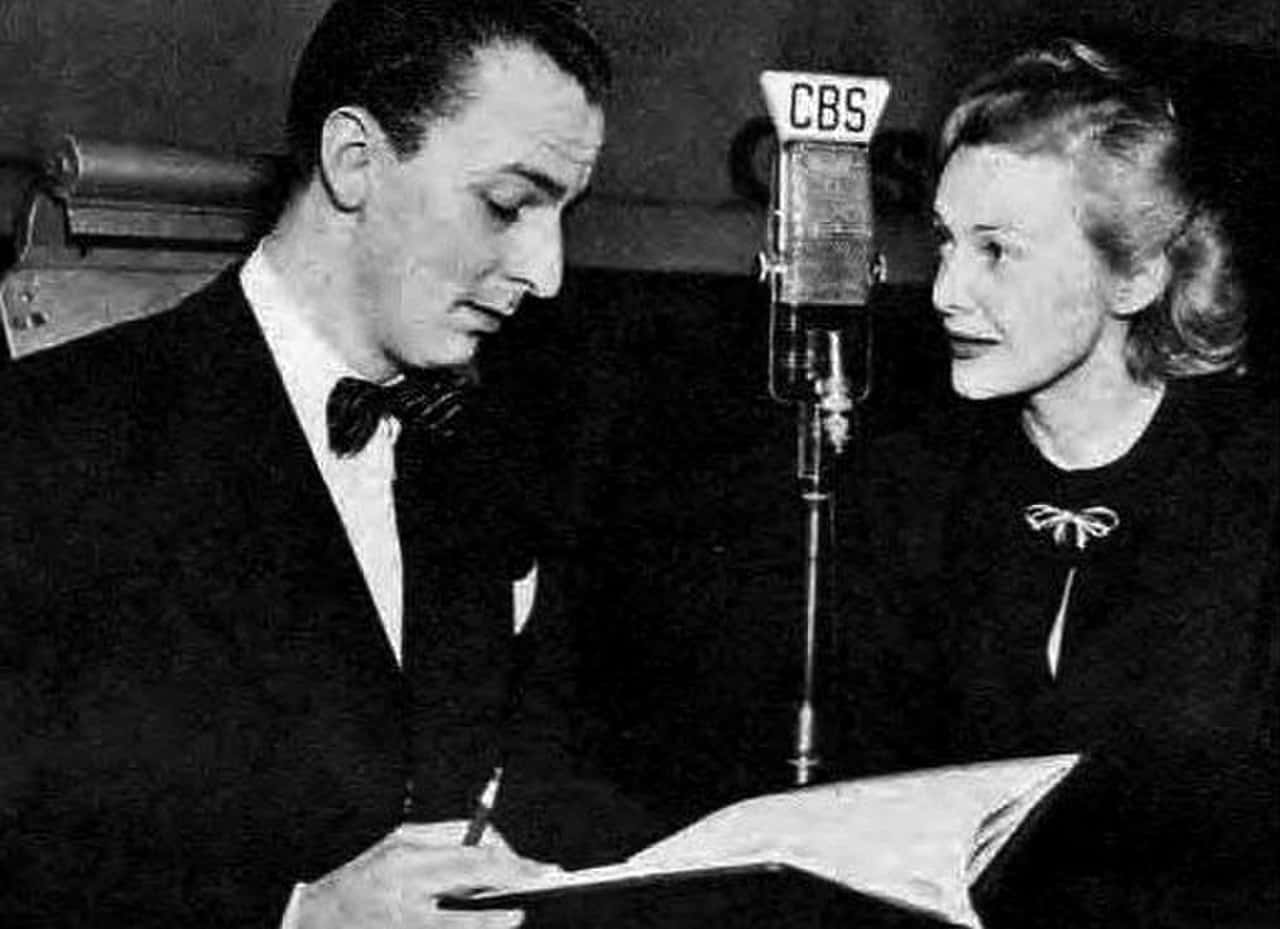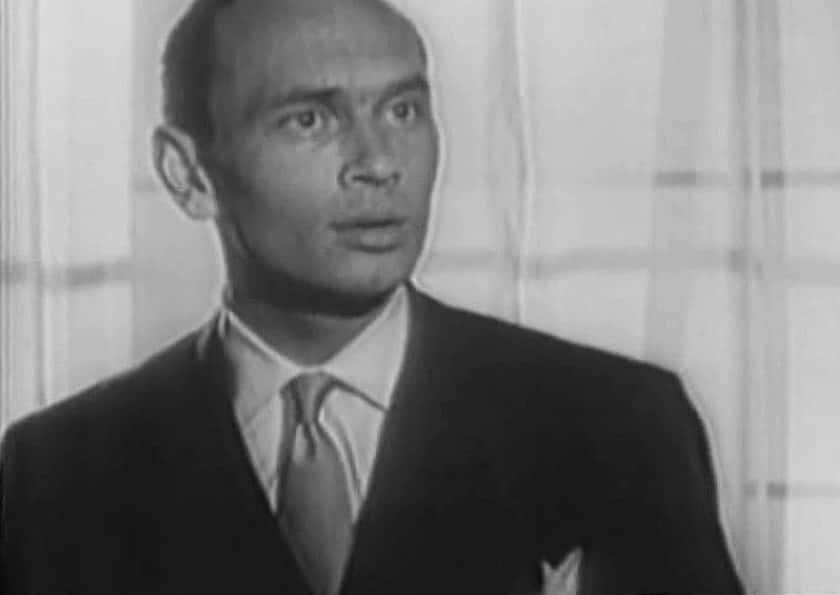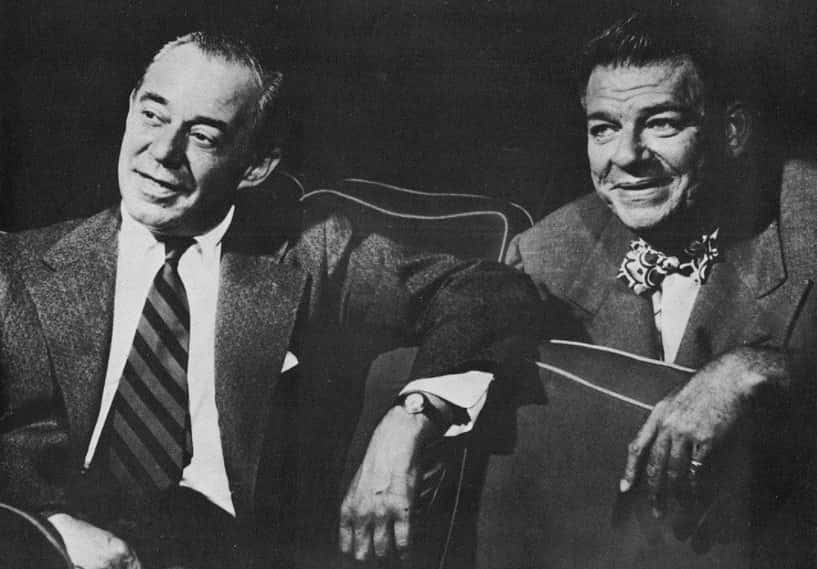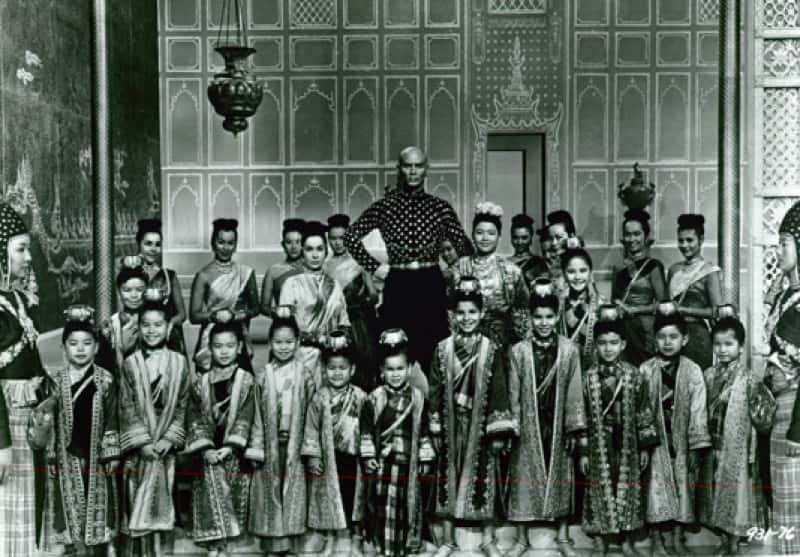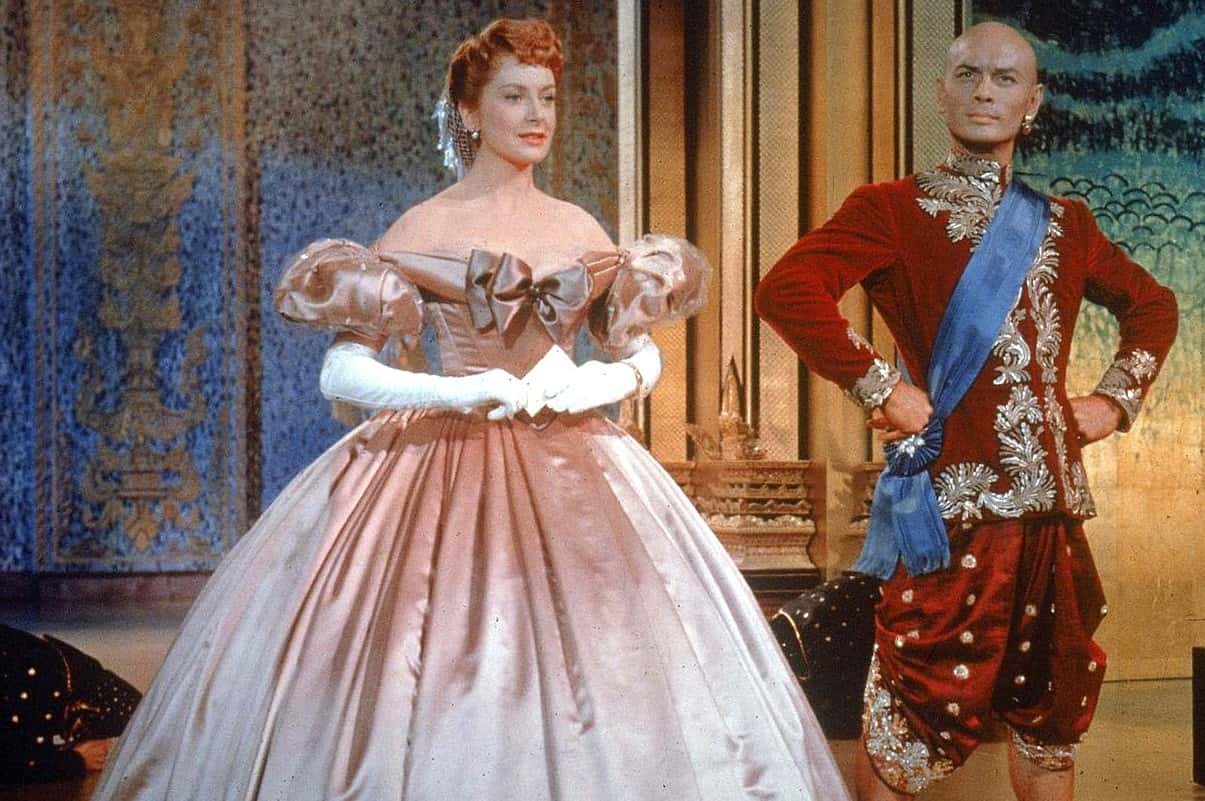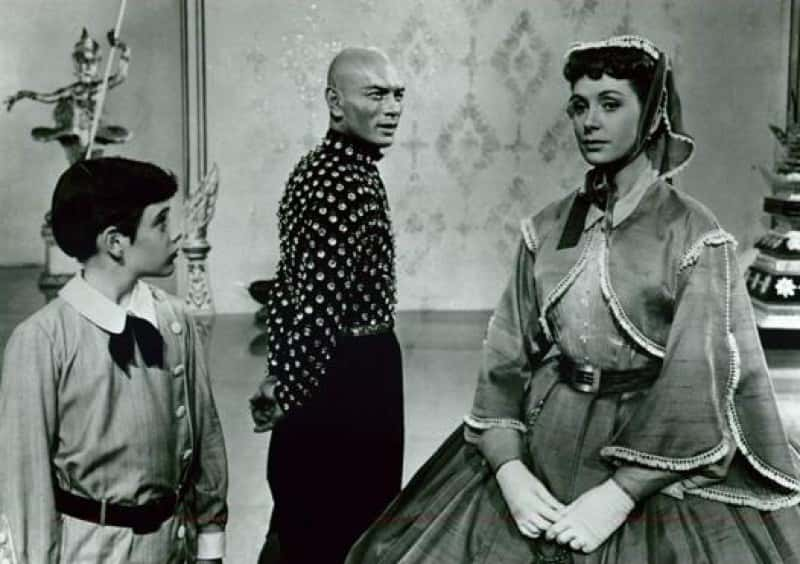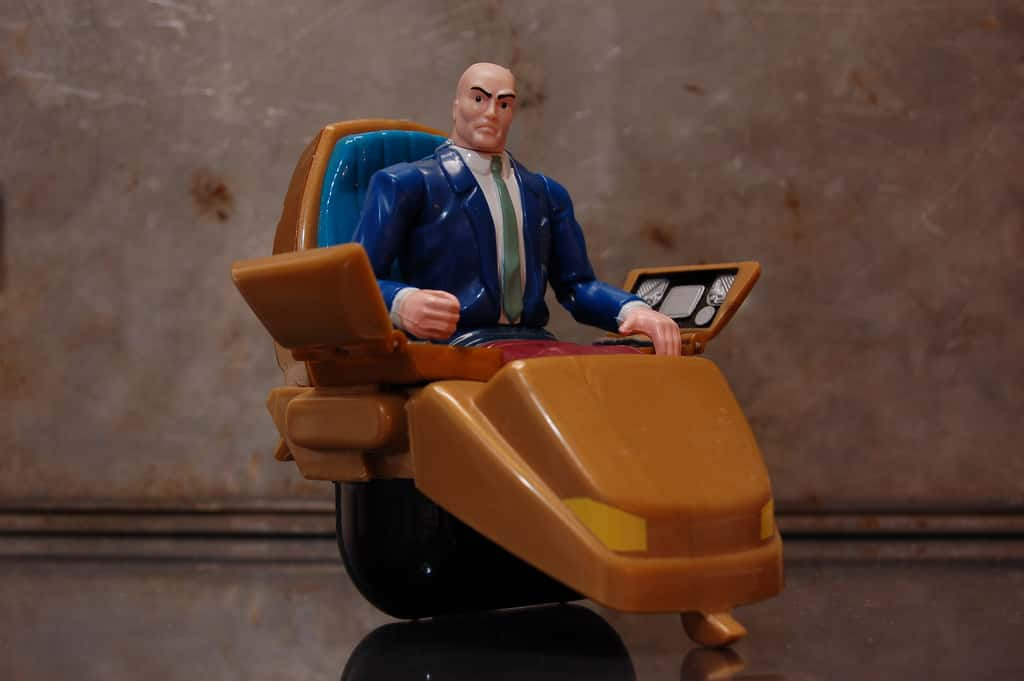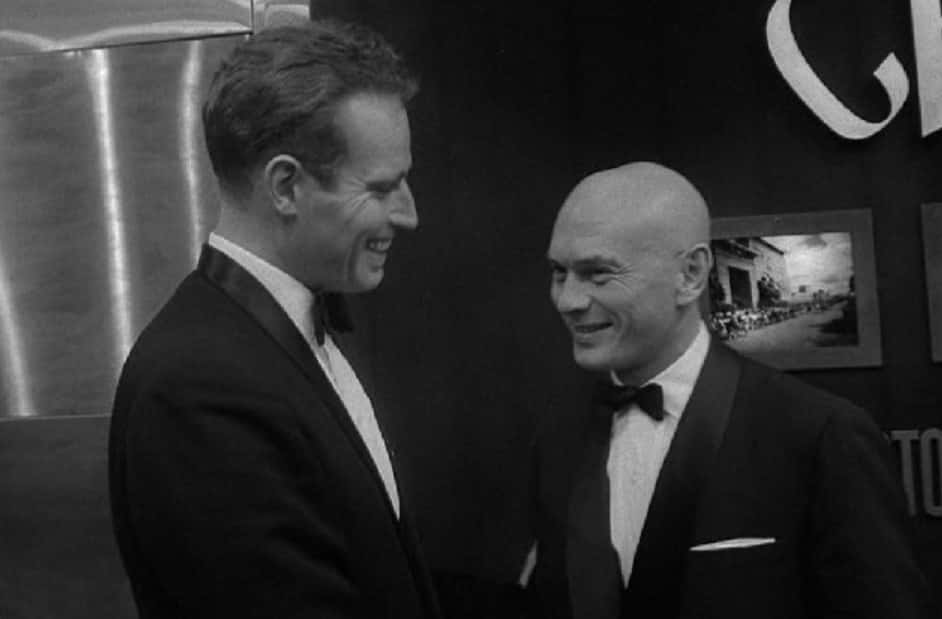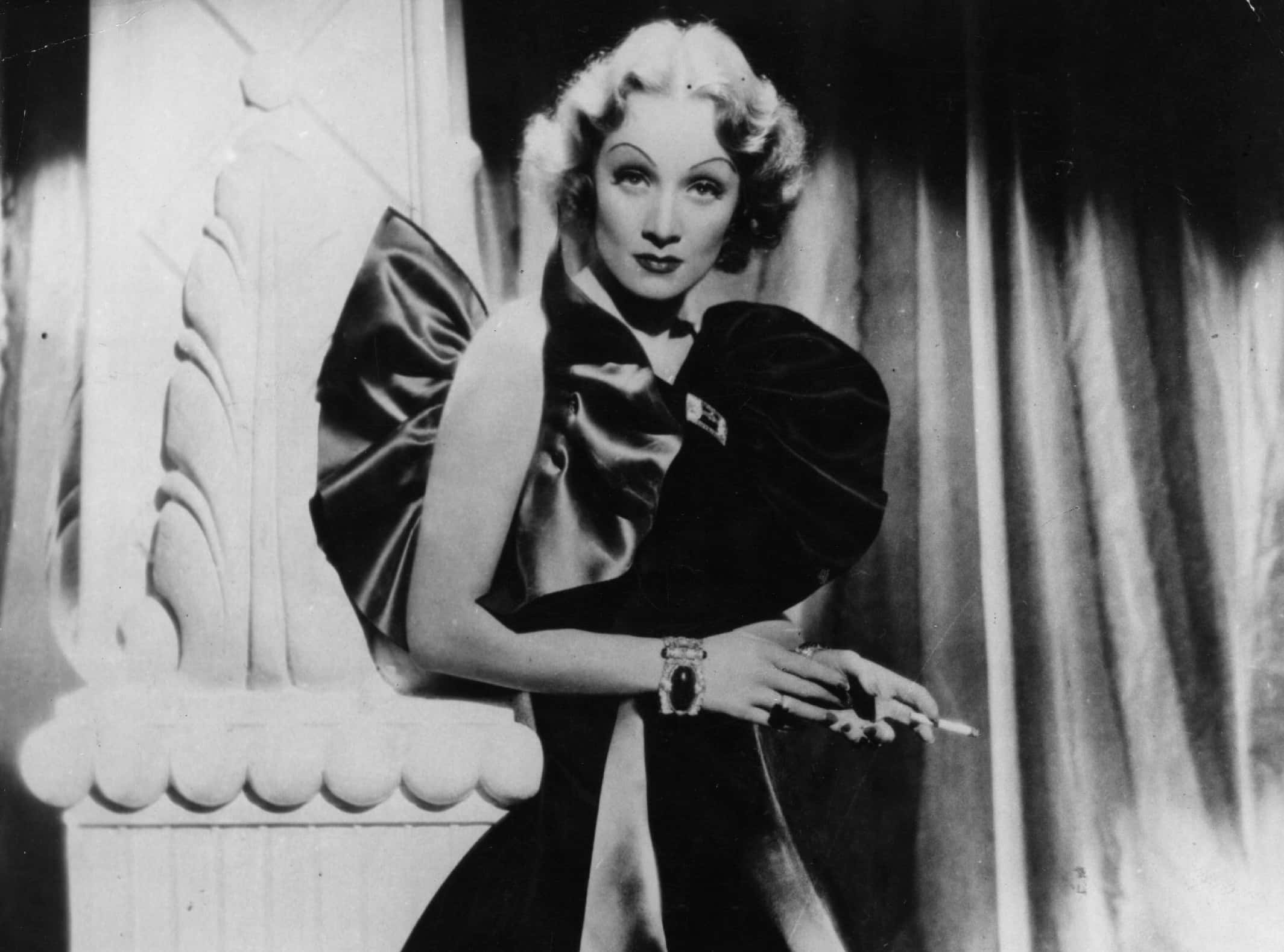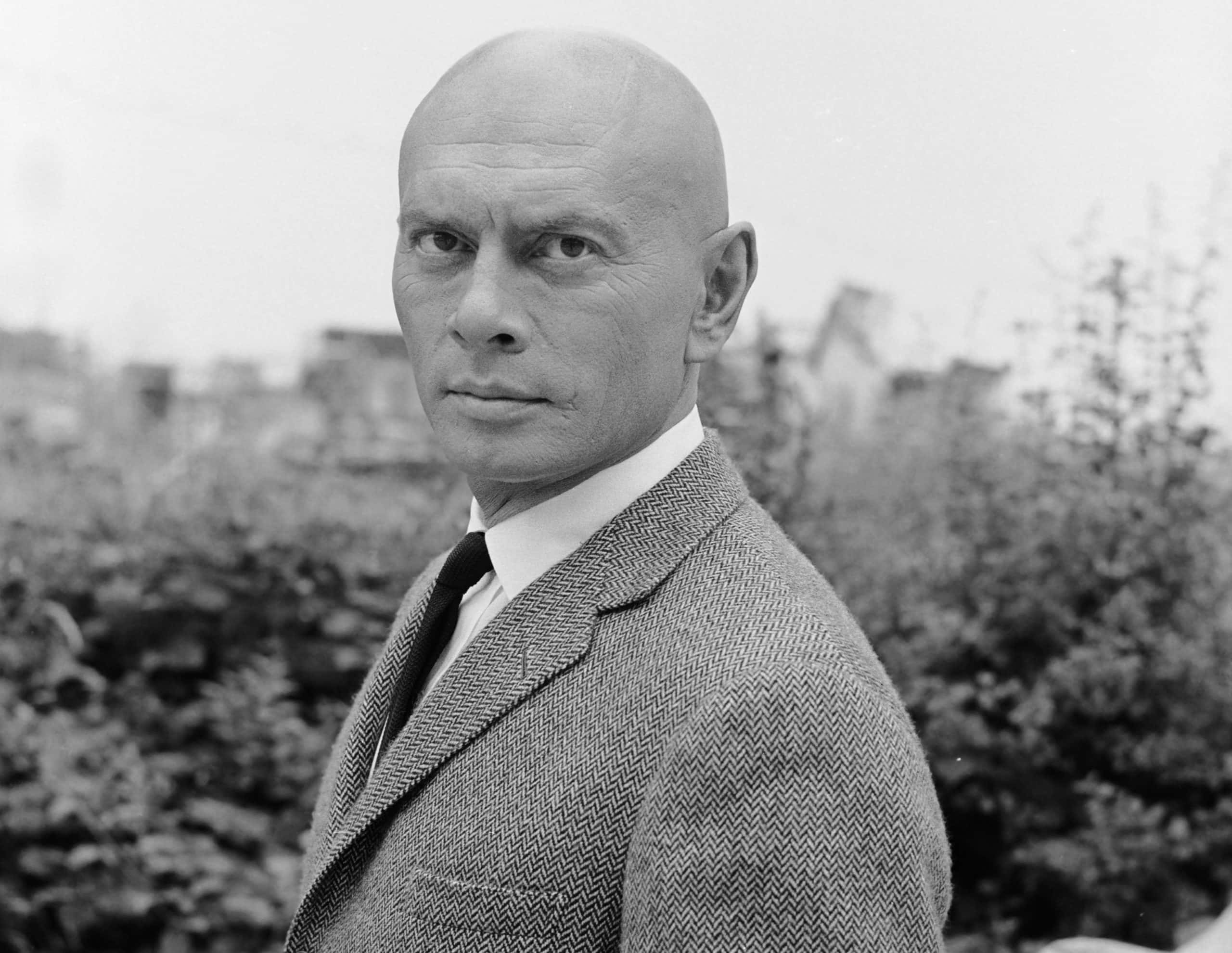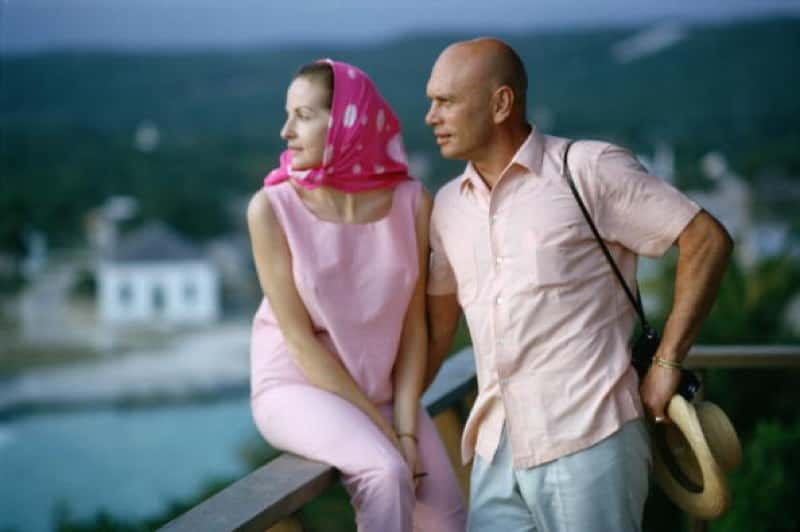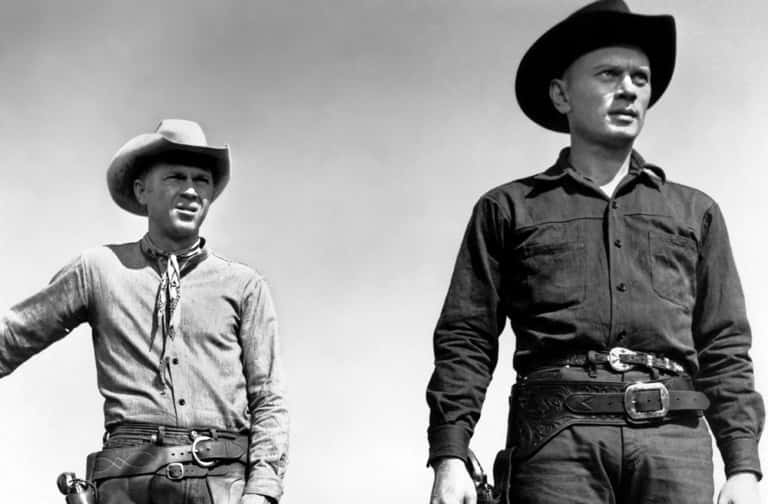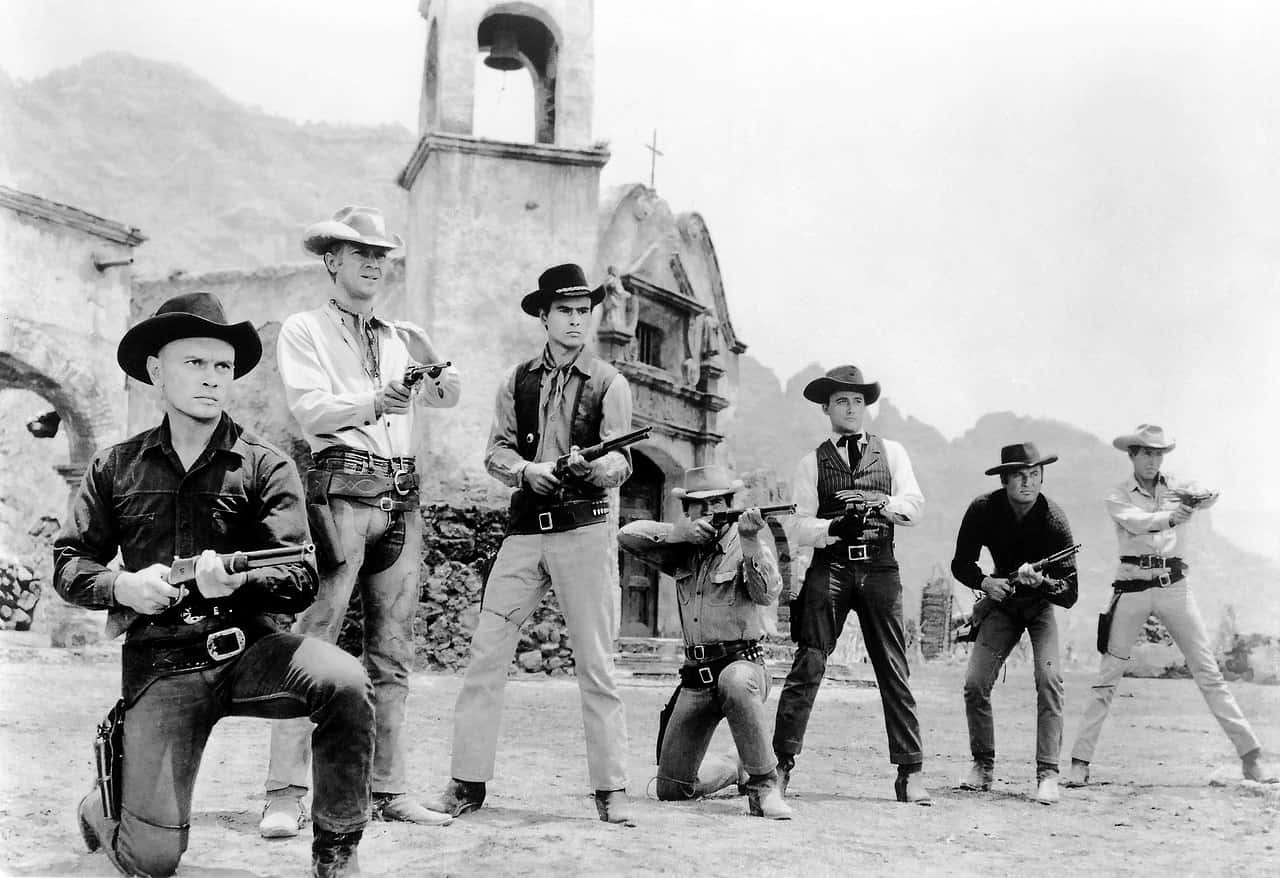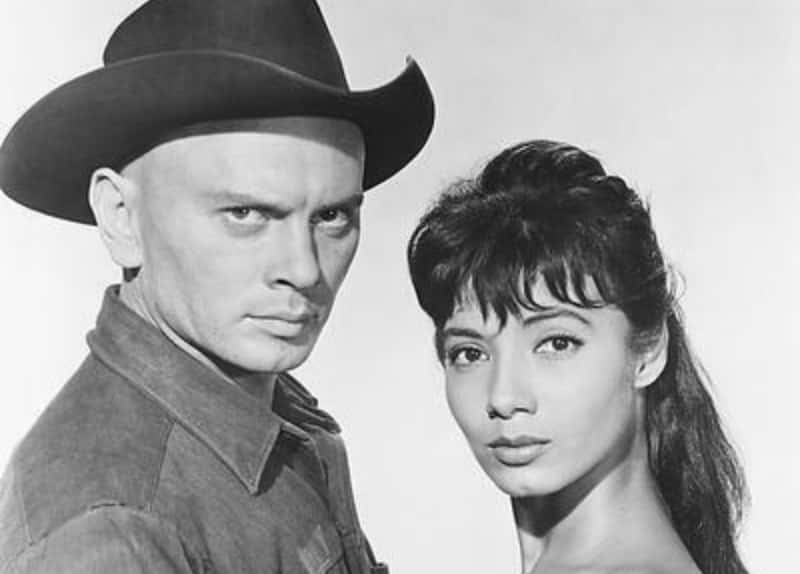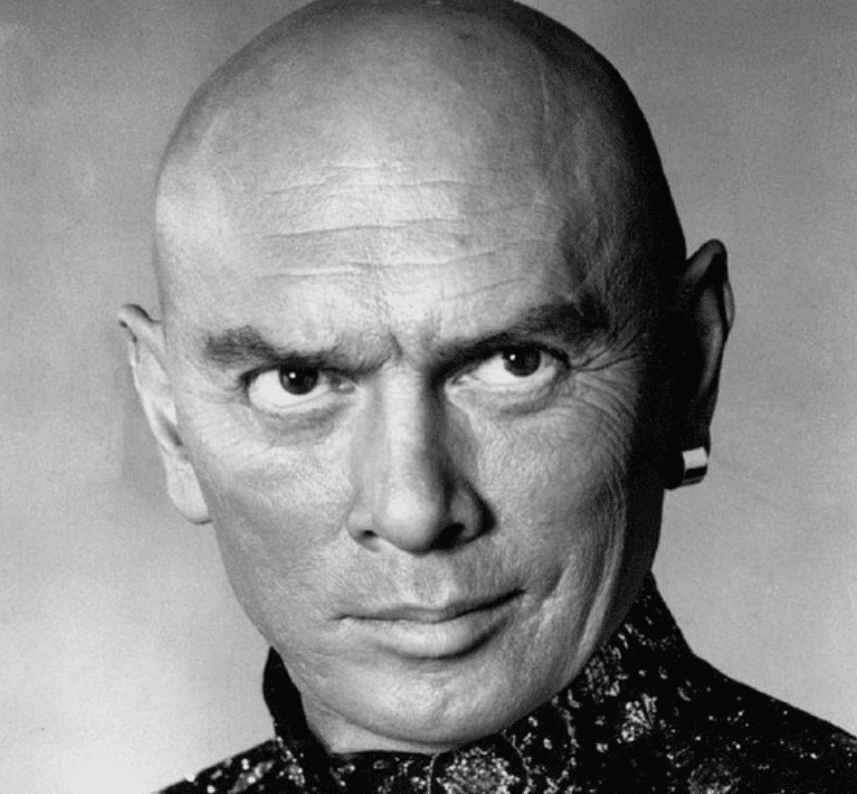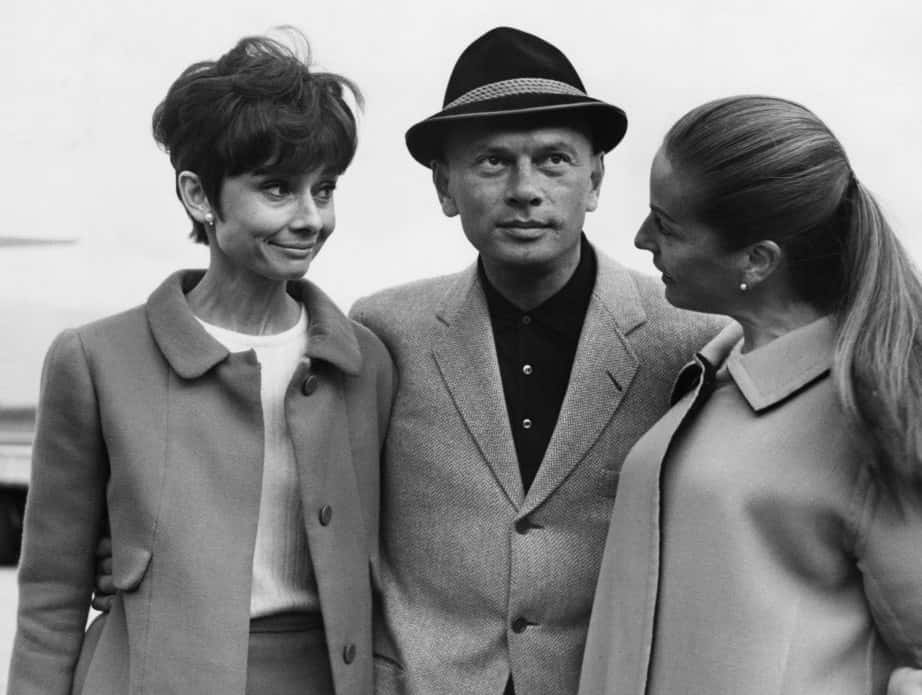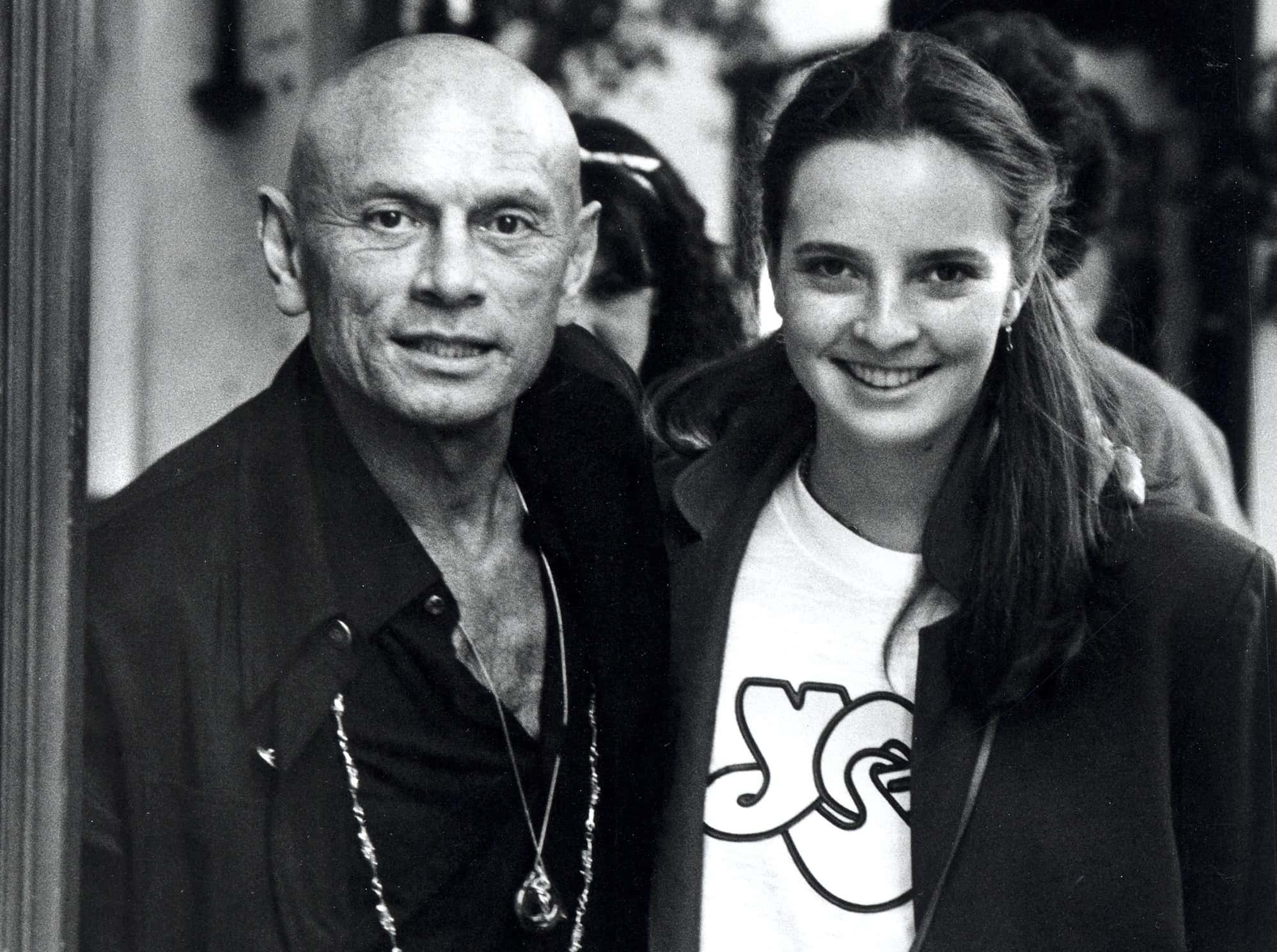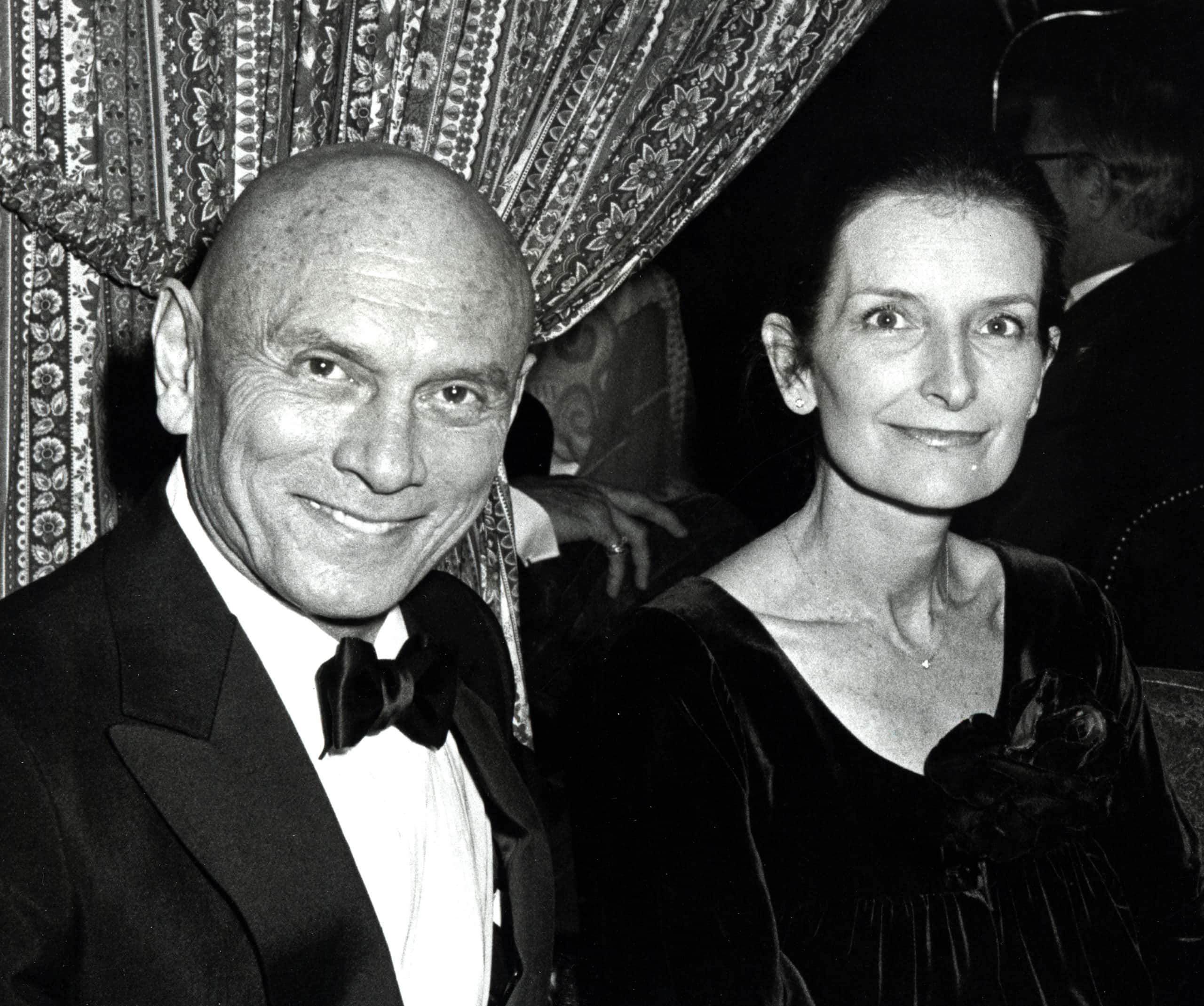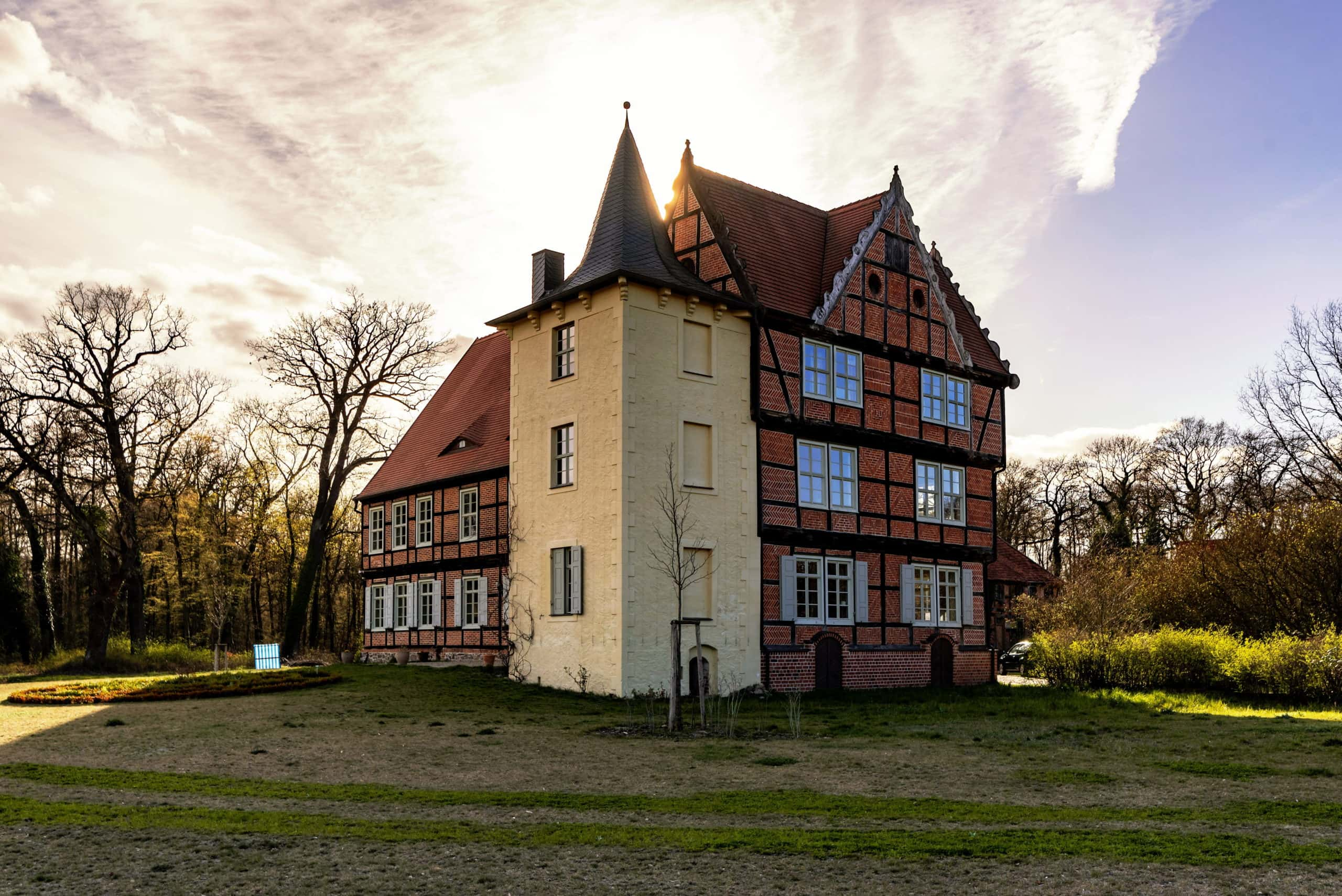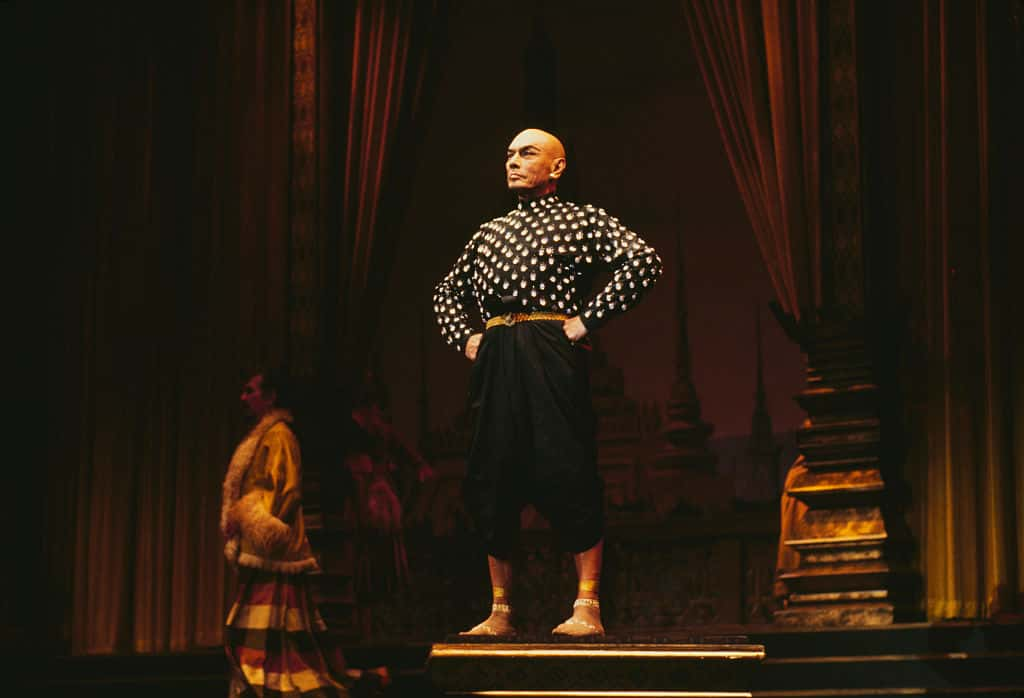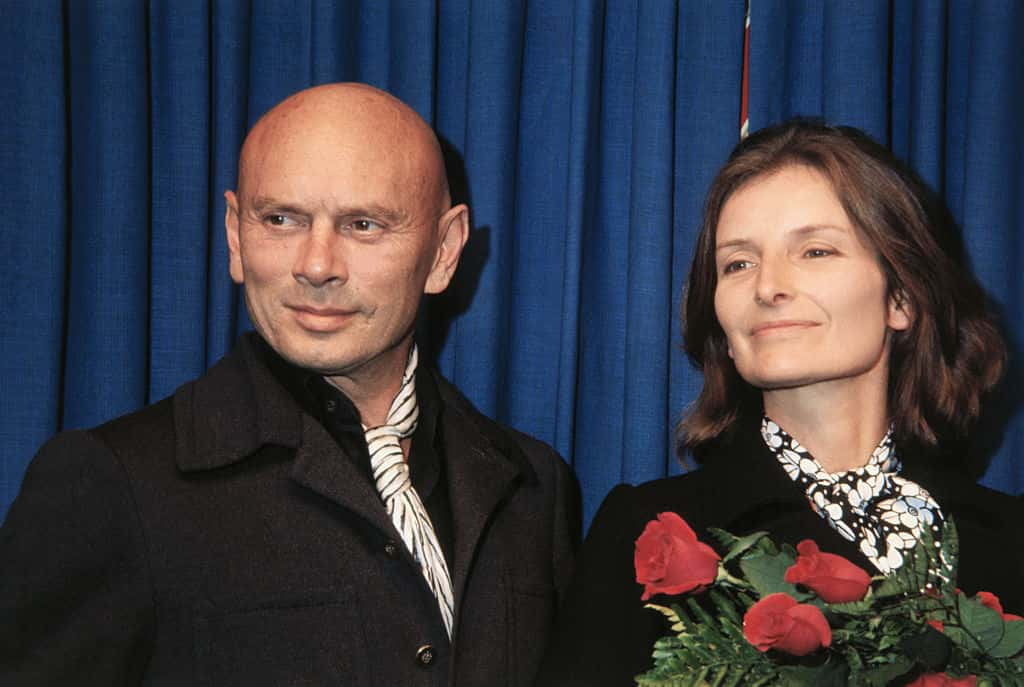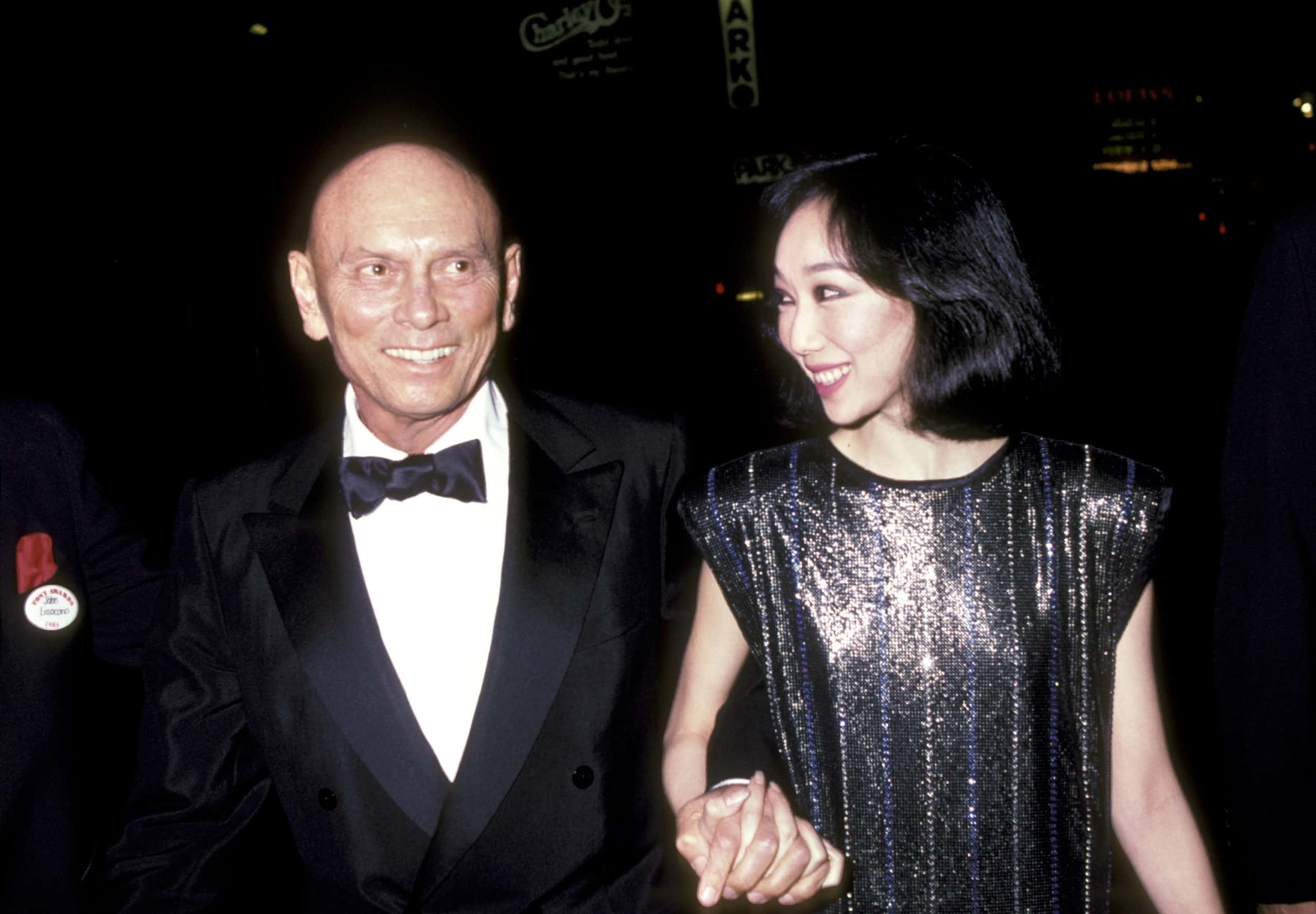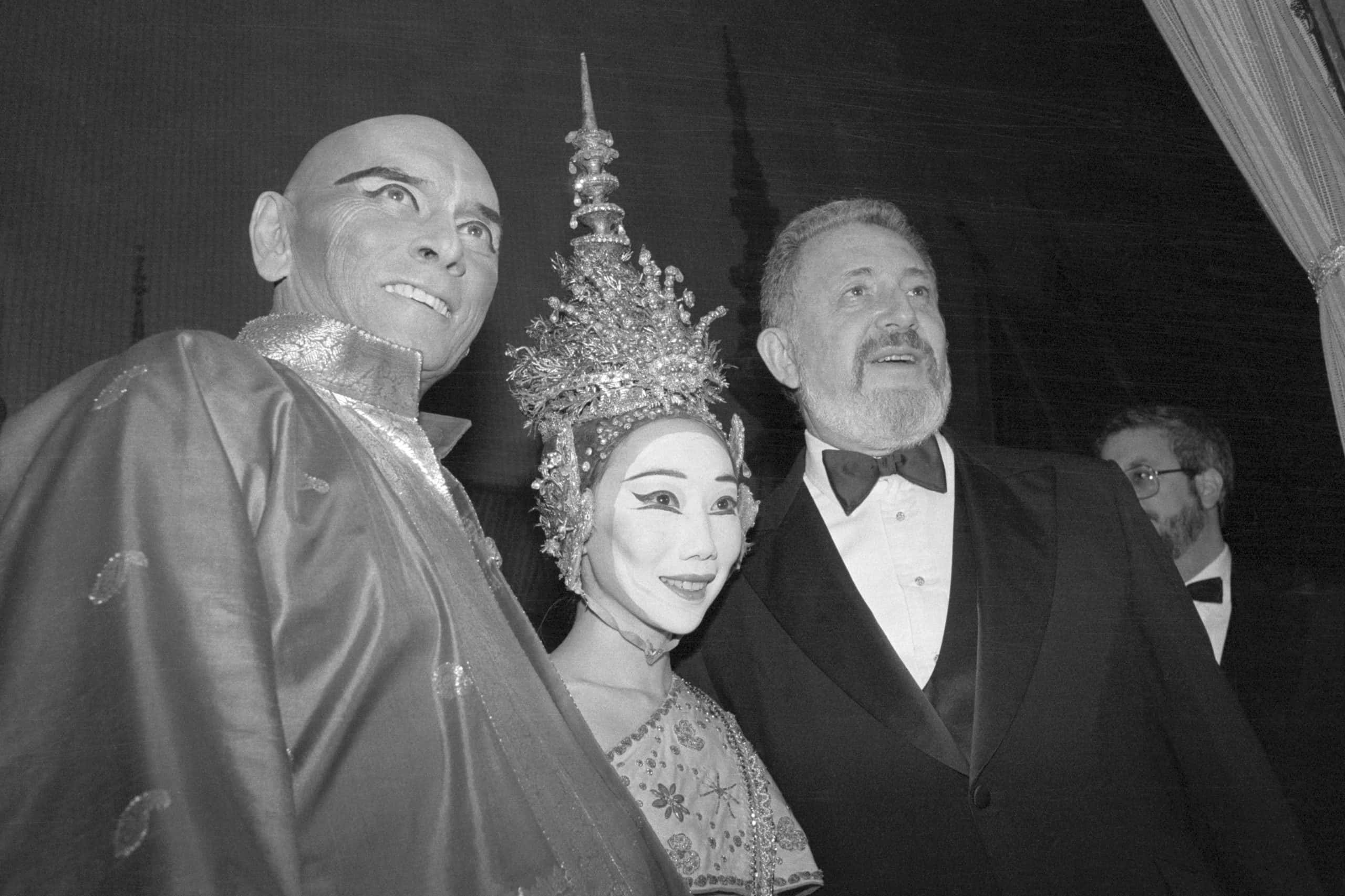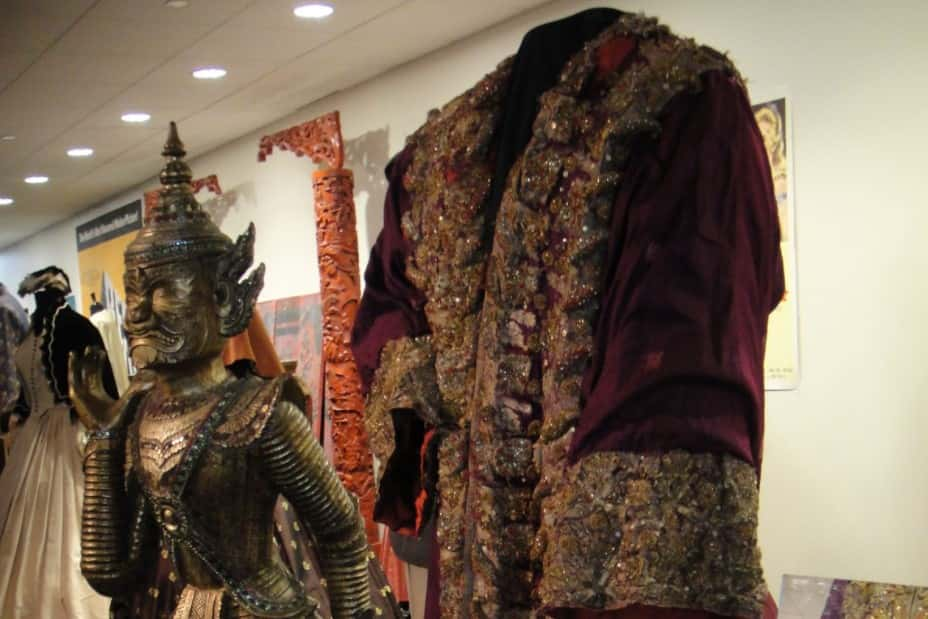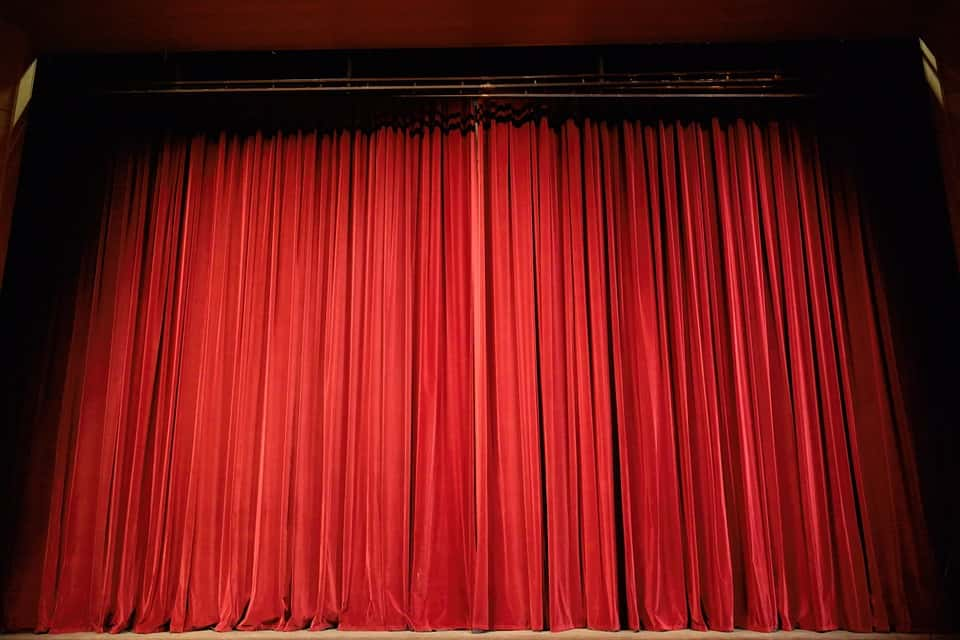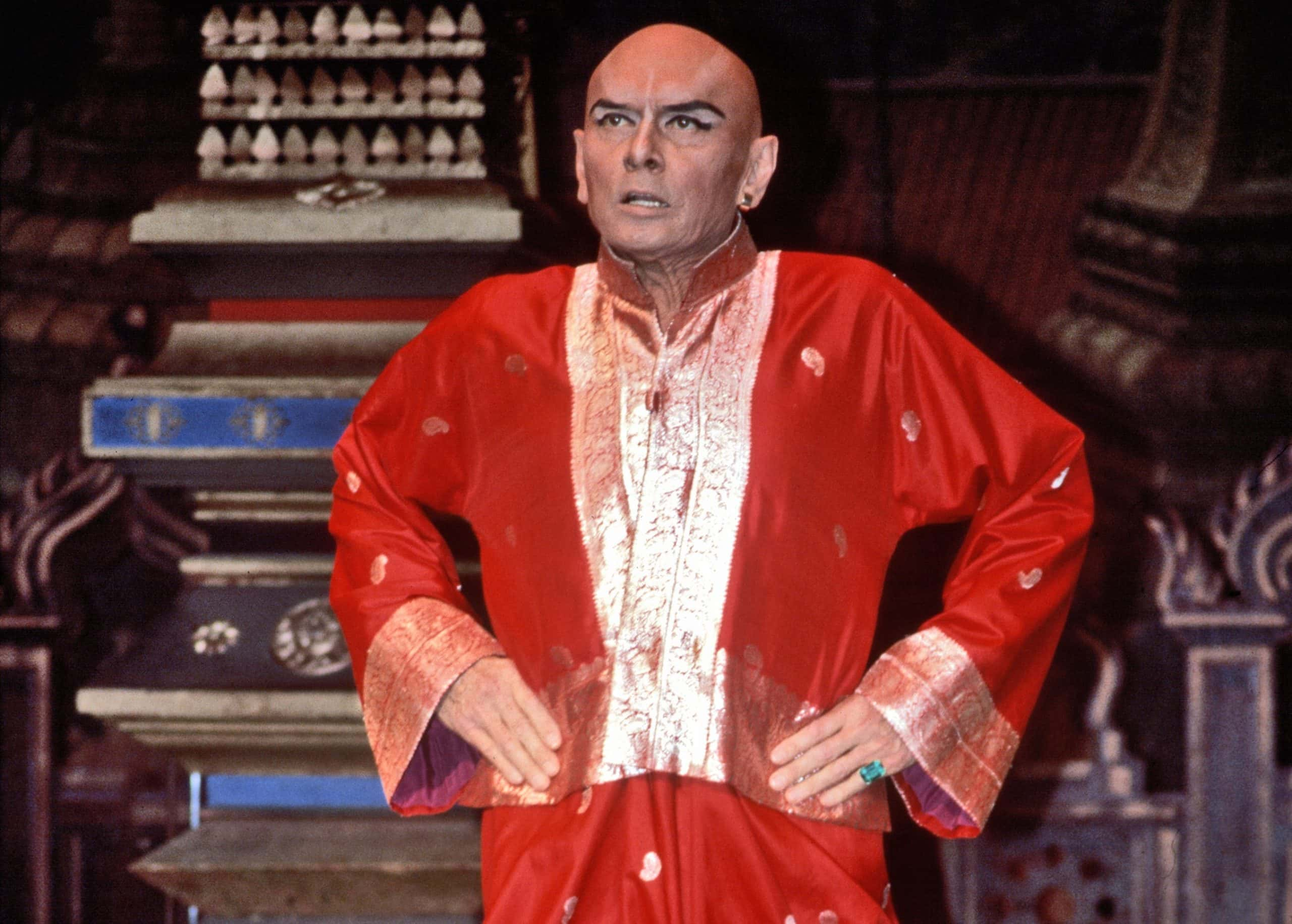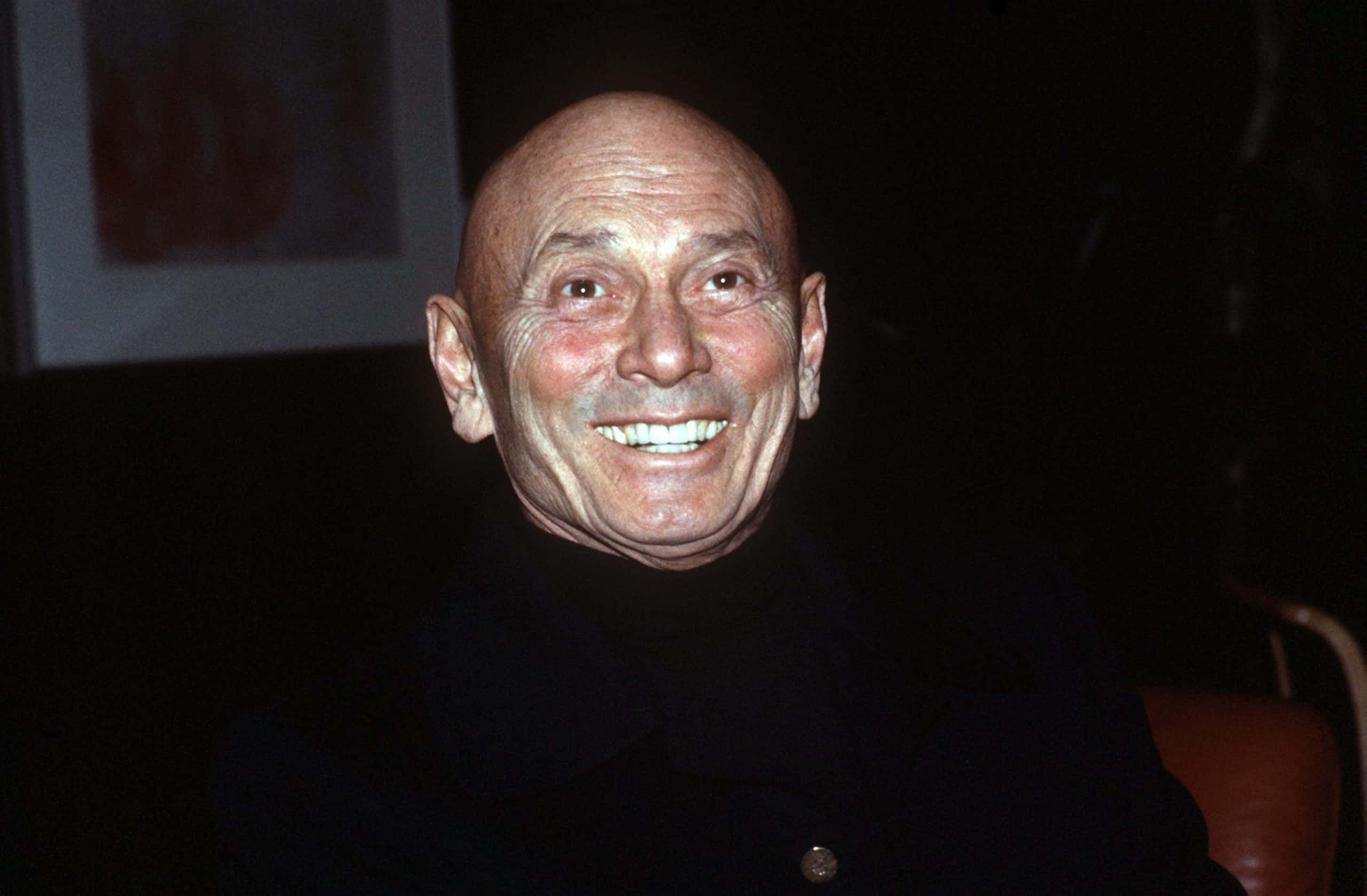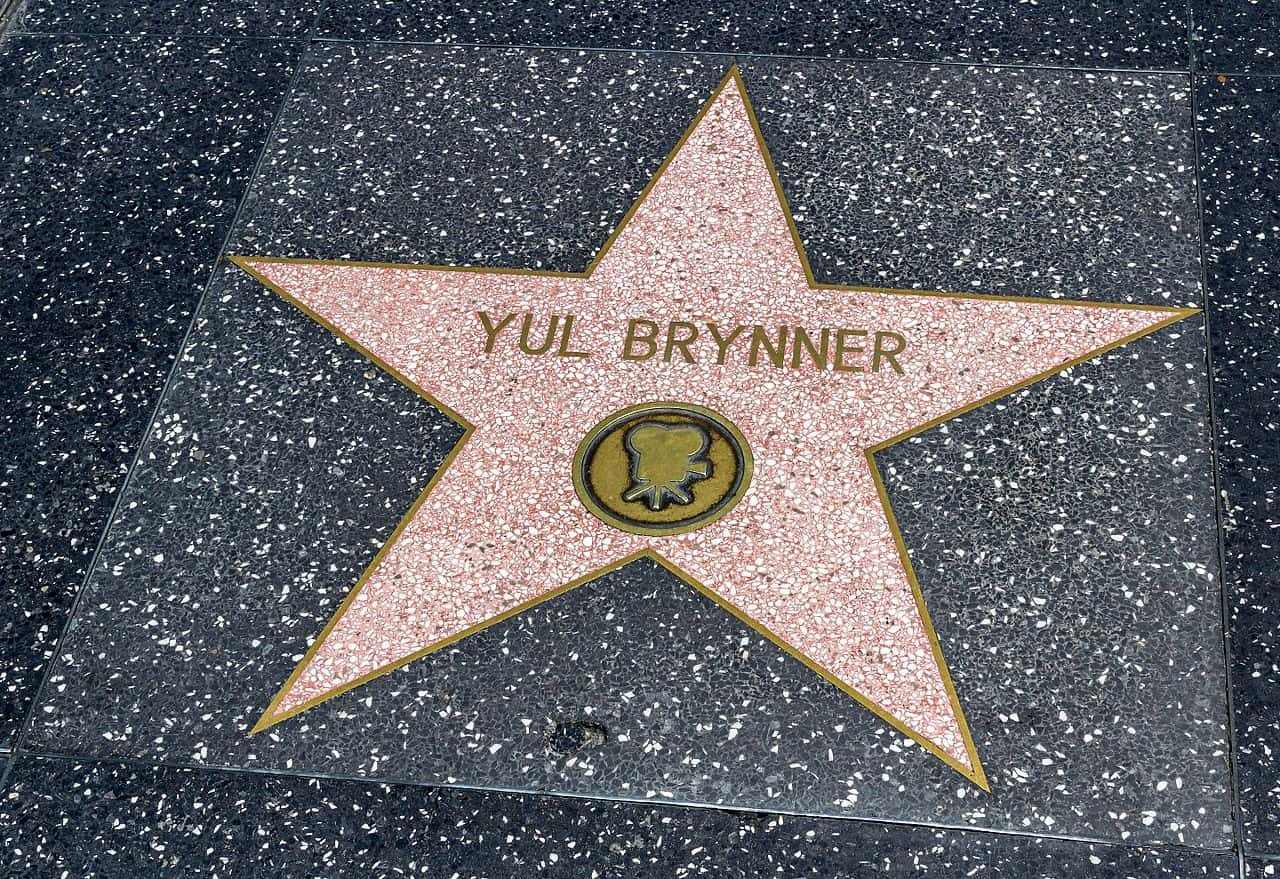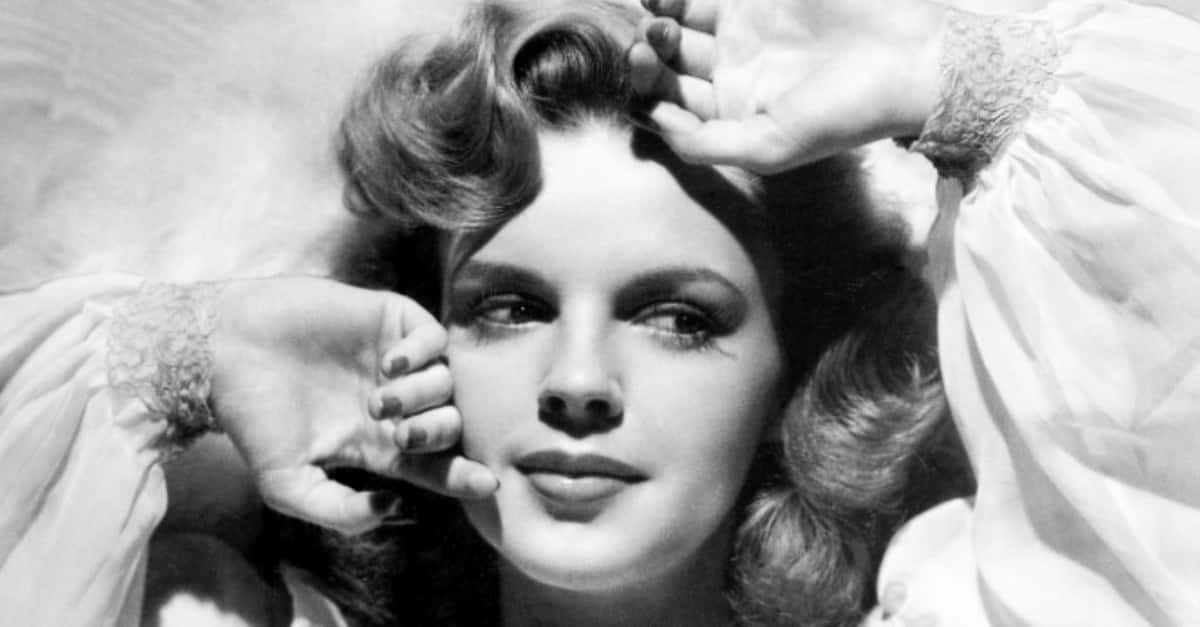Yul Brynner had Hollywood's most chilling stare—yet few people knew anything about the incredibly complicated man who lay behind those icy eyes. From his harrowing origins to his rise to stardom to his roller coaster love life, more people need to hear Yul Brynner's story.
1. He Flew Many Flags
In 1920, Yul Brynner was born on the Eastern shores of Russia, in Vladivostok. Before adopting a stage name, he was Yuliy Borisovich Briner. His mother was an actress and singer, and he had one older sister who sang in the opera. Brynner’s father, the only one who was nonartistic, was an inventor and mining engineer. Dad may have felt like the odd man out—but that doesn't make what he did to his family any better.
2. He Got Dumped
As a mining engineer, Brynner’s father traveled, and apparently his eye wandered too. In 1923 he met an actress while on a business trip and decided to start a new life—without his existing family. He abandoned Brynner, his wife, and daughter, and never saw them again. Brynner had lost his father forever, but his mother didn't waste any time moving on.
3. They Took Flight
Once Brynner’s mother figured out that her husband wasn’t returning from his business trip, she took action. She packed up Brynner and his sister, and the three of them headed to Harbin China, also known as the Oriental Paris. Brynner and his sister attended classes at the local YMCA and life seemed good—at least until mother had a bad feeling.
4. They Tried The Real Thing
Brynner’s mother felt that there would be a conflict between China and Japan, and she didn’t want her children caught in the middle of it. Since they liked their Oriental Paris, mom assumed they would like the real thing. So in 1932, Brynner, his mother, and sister found themselves traveling again—this time to Paris, France.
5. He Left Home
When Brynner and his family arrived in Paris, he was just 12 years old. There were, of course, many challenges. It was a new country with different customs and, of course, a new language to learn. These obstacles didn’t stop Brynner from going off on his own. He lived with a family of Roma away from his mother and sister. With this new family, he learned to play the guitar—which led to his first performance.
6. He Performed
Brynner was still a teenager and had a new skill: playing the guitar. He was eager to show off his talent, but where? Brynner began playing his guitar in Paris's Russian nightclubs. Soon, his sister was joining him with her beautiful voice. Together they performed both Russian and Roma songs. When Brynner grew tired of this, he turned to something a little more challenging.
7. He Looked Up
Maybe Brynner thought singing with his sister was a little too girly, so he looked upward for inspiration for his next move. What he saw when he looked up wasn’t god, it was the big tent. Brynner enrolled himself at the Paris circus school and was soon a professional trapeze acrobat. Brynner followed this dream for five years—until his passion was suddenly crushed.
8. He Made A Switch
It turned out that being a trapeze artist was, for Brynner anyways, a pain. More specifically it was a pain in the back. Unfortunately, he suffered a brutal accident and had to turn away from performing under the big tent. His first thought was to give acting a try. But before he did that, Brynner had some experimenting to do, and it sent him down a dark path.
9. He Did Drugs
Maybe it was to ease his back pain, or maybe it was the emotional pain of leaving the circus. Whatever the reason, Brynner started using opium—which was pretty common amongst the arty crowd in Paris. At one point Brynner admitted that he had a pretty strong addiction to the habit-forming drug. But Brynner had ambition, and wouldn’t let a silly drug get in his way.
Besides, his mother was about to need his support in a big way.

History's most fascinating stories and darkest secrets, delivered to your inbox daily.
10. They Split
Out of the blue, doctors gave Brynner’s mother a bleak diagnosis: It was leukemia. This sent the family into a tailspin and, for some reason, Brynner and his mother decided to return to their Oriental Paris for a short time. Brynner’s sister Vera, on the other hand, went on to America in pursuit of a career in singing.
11. They Wanted To Reunite
Two years after arriving back in China, Brynner’s mother’s health had improved. She and Brynner were ready for a big move. In autumn of 1940, they boarded the President Cleveland in Kobe, Japan. Their destination? San Francisco California. The plan was to eventually meet up with sister Vera who was, at this point, singing her heart out in the Big Apple.
12. He Was A Sponge
Brynner had already become fluent in French while living in Paris. Now he was facing another language change in New York—to English of course. But Brynner's brain seemed to be like a sponge when it came to languages. He was soon fluent in English as well, and ready to begin his acting career—which he’d put on hold for his mother.
However, fate was about to throw another wrench in his plans.
13. He Had A Gift
It was the early 1940s and, of course, WWII was rearing its ugly head. Again, Brynners’s acting career would have to be put on hold. But Brynner got a break. At that time, the US Office of War Information needed something desperately: French speakers. Brynner soon found a position as a radio announcer and commentator in French.
The best thing about this position was that it would keep Brynner stateside, where he could still pursue his dream of being an actor.
14. He Did Double Duty
Brynner wasn’t about to let the European conflict get in the way of being an actor. So, while serving his country as a French radio announcer, he did something else: He took acting lessons. And these weren’t just ordinary lessons. Brynner tracked down Michael Chekov—acclaimed Russian playwright Anton Checkov’s nephew—and learned his craft from this master.
15. He Learned A Method
Brynner’s new acting teacher had studied under Stanislavski—in fact, he was his most brilliant student. You may have heard of Stanislavski as the father of “Method Acting,” and Chekhov was a part of this movement in America. Brynner was in good company, as other students of Chekhov’s included Clint Eastwood, Jack Palance, and even Marilyn Monroe.
With this kind of training, Brynner was more than ready to show off his acting chops.
16. He Had A Plan C
In late 1941, Brynner had a very small part on Broadway in Shakespeare’s Twelfth Night. Other than that, nothing much else was happening for the young star to be. Since there weren’t many acting roles for Brynner, he turned a page and became a model. But he wasn’t modeling fashion. In fact, it was sort of the exact opposite of that. Brynner was about to bare it all in his search for stardom.
17. He Went Au Natural
Brynner somehow came to the attention of photographer George Platt Lynes. Lynes was famous as a commercial photographer for publications like Harper’s Bazaar and Vogue, but he had another interest that mostly flew under the radar: arty pictures of naked men. Brynner obliged the photographer—for a fee of course—and Lynes promised to keep the photos in his private collection.
Yeah, that was a lie.
18. He Went Public
During Lynes’ lifetime, he swore to keeps his homoerotic portraits, including Brynner’s, to himself. However, before Lynes passed in 1955, he gave these photos to famed researcher of all things naughty: Dr. Alfred Kinsey. Because of this, the photos of Brynner are now in the public domain and can be easily seen with the click of your mouse. Not that you'd be interested in that sort of thing, of course...
19. He Walked Down The Aisle (1944)
Posing in his birthday suit did nothing to curtail Brynner’s dating life. In 1944, Brynner married Broadway and film actress Virginia Gilmore. Their relationship was so stormy, it made Gilmore want to quit acting. She famously said that “two actors can’t manage together. Someone has to give.” Well, it certainly wasn’t Brynner who was doing any giving.
20. He Found His Passion
Well, Brynner wasn’t about to give up his dreams of show business for anyone. After marrying Gilmore, Brynner went from acting to directing. The show was Studio One, a CBS program that produced high-quality dramas. Brynner was finally finding his passion as a director. And wouldn’t you know it, that's when Hollywood finally came calling.
21. He Got Brought Back
The project was 1949’s film noir Port Of New York, where Brynner plays a suave drug dealer whom federal agents are trying to bring in. The film stood out for two reasons: It was told in a new and exciting documentary style, and it was future star Yul Brynner’s first film role. Another distinction? It got Brynner interested in acting again.
22. He Reconsidered
Even after his positive experience of filming Port Of New York, Brynner was still convinced he wanted to direct. At that point, friend and fellow actor Mary Martin brought Brynner’s attention to a new script by musical theater wunderkinds Rodgers and Hammerstein. The script was The King And I. Brynner had given up on acting, but something about the role of the King piqued his interest.
He still never could have expected how his life was about to change.
23. He Made History
In 1951, Brynner auditioned for the role of the King in The King and I and got it. It is no overstatement to say, at this point, that the rest was history. Brynner ended up performing as the King 4,625 times—which includes Broadway performances, touring performances, and revivals in 1977, 1979, and 1985. I guess it’s pretty safe to assume he never forgot his lines.
But before Brynner could rest on his laurels, Hollywood came calling again.
24. He Took The King To Hollywood
When Twentieth Century Fox was preparing to make a film version of The King and I, they of course turned to Brynner. He’d already won a Tony for his portrayal, so they would’ve been crazy not to cast him here. Brynner didn’t disappoint. In 1956, he received the Best Actor Oscar for his role. It’s rare for an actor to win both a Tony and an Oscar for playing the same role. Brynner is one of only 10 people to do this.
25. He Started a Trend
Aside from the Oscar and Tony, there was another distinguishing factor about Brynner’s role as the King: his hairstyle. Or actually the lack of one. Back in the 1950s men who suffered from male pattern baldness did just that: suffered. Brynner’s shaved head in The King and I let America know that bald was beautiful. It also became Brynner’s trademark look.
26. He Inspired a Legend
The influence of Brynner’s bald head, however, didn’t stop there. It was the inspiration for a comic book character that has made a big impact on movies today. When Jack Kirby was drawing Professor Charles Xavier for the original X-Men comic, he took Brynner’s shaved head as his inspiration. You’re welcome, Patrick Stewart.
27. He Got Cut
Brynner’s next role was the part of Pharaoh Rameses II in The Ten Commandments. There was just one problem: His co-star was Charlton Heston. It wasn’t Heston himself that bothered Brynner, it was his physique. Brynner didn’t want to look wimpy compared to the buff Heston, so he started working out like gangbusters. His new buff physique held its own against Heston, and also made him even more attractive to the ladies.
Unfortunately, the increased attention from the fairer sex was too great of a temptation for Brynner.
28. He Played The Field
Brynner had certainly sold his “bald is beautiful” look to the masses, and there was one famous individual whom his shiny orb really attracted. During the first run of the King and I on Broadway, Brynner hooked up with bad girl Marlene Dietrich—who was 19 years older than him. I guess Brynner had conveniently forgotten that he was still married to Gilmore.
But Dietrich wasn't the only time Brynner strayed...
29. He Had Kids
Brynner had a son with Gilmore in 1946, and, in 1959, he had a daughter without her. He also had an illegitimate daughter with 20-year-old Frankie Tilden—Brynner was 39 at the time. Feeling responsible—well, duh—Brynner supported the mother of his child, who still lived with her own mother. Brynner desperately tried to keep this lovechild under the radar, but didn't do such a good job of it.
30. He Tied The Knot On The Range
It may have been the secret daughter that did it, but for some reason, Brynner’s marriage to Gilmore ended in 1960. Brynner snapped back quickly, marrying Chilean model Doris Kleiner. The two decided to tie the knot on the set of the film The Magnificent Seven—the western Brynner was shooting at the time. Let’s hope there was more than just cactus as a backdrop.
31. He Had A Disagreement
While getting married on the set of The Magnificent Seven may have been special, Brynner’s experience there wasn’t. He was having problems with his co-star Steve McQueen. McQueen was angry that Brynner had more lines than he did, so the director had to promise McQueen he’d at least be on camera more than Brynner. This seemed to calm McQueen down—at least until they started shooting.
32. He Lost Focus
McQueen only had a measly seven lines in the entire film, and therefore had to spend a lot of time listening to Brynner. So, what can an attention-starved actor do to draw attention to his muted self? Well, Mcqueen pulled several dirty tricks to take the focus from Brynner. Among them were: flipping coins, playing with his hat, and rattling his firearm. Don’t worry though, Brynner got his revenge.
33. He Took The High Road
While McQueen was busy hogging the focus, Brynner was up to his own tricks. Bynner was only half an inch taller than McQueen, so between takes, he would build small mounds in the ground to stand on in order to make the difference seem greater. When McQueen noticed Brynner’s tricks, he stomped on the mounds and brought Brynner back down to earth.
Nothing like seeing two grown movie stars looking like petty babies!
34. He Was Short of Money
By the mid-1960s, despite his success, Brynner was having money problems. The problems were about taxes—in that he didn’t want to pay them. He’d become a naturalized citizen of the US back in 1943, but because Brynner worked overseas so much, he lost his ability to get a tax exemption. This meant paying his full taxes, and forking over a fortune. But Brynner had a plan.
35. He Gave It Up
You know who doesn’t have to pay taxes to Uncle Sam? Non-Americans, that’s who. Brynner's plan to avoid paying his US taxes was to give up his American citizenship. So, in June 1965—in Bern, the capital of Switzerland—Brynner officially gave up his citizenship in America. All in order to save a few bucks. So much for patriotism.
36. He Lasted Seven Years
The marriage to the Chilean model had a shelf life of about seven years—but I doubt he’d call them seven magnificent years. The two parted after having one child together: Victoria Brynner, whose godmother was Katharine Hepburn. Victoria went on to create a company that matched designer products with celebrities. Maybe she got the idea by seeing her dad dressed up—in drag.
37. He Donned A Dress
Brynner didn’t always take himself so seriously—although his stern expression said otherwise. He even had a feminine side. In Peter Sellers’ 1969 comedy The Magic Christian, an uncredited Brynner actually performed in drag. In the film there is a scene where Brynner, dressed as a woman, tries to pick up a man on a ship, played by none other than director Roman Polanksi.
 The Magic Christian (1969), Grand Films Limited
The Magic Christian (1969), Grand Films Limited
38. He Was Particular
While touring with a play called Odyssey, Brynner had somehow picked up some odd quirks. He was picky about hotel rooms; especially about the color of the walls. He needed the walls to be in a shade of tan that fell under his specifications. Also, he needed housekeeping to pre-stock the kitchenettes of his suite with 12 brown—never white—eggs.
He wasn’t, however, so much of a diva that he minded paying handsomely for the special treatment.
39. He Expanded
Yul Brynner's next wife (notice we said "next" and not "last") was a French socialite with a really long name: Jacquline Simone Thion de la Chaume. The two married in 1971 and quickly adopted two children from Vietnam, Mia and Melody. With two young ones suddenly in their midst, the newly married couple looked for appropriate housing—which also had to be fit for a King.
40. He Settled Down
The home for Brynner, his wife, and two children was to be the first house for Brynner, so he wanted to go big or go home. Brynner and his wife settled on the Manoir de Criqueboeuf—you know a house is a big deal when it has a name. The princely abode is a 16th-century manor house in northwestern France.
Sounds like the perfect setting for familial bliss—then it all went so wrong.
41. He Wanted To Leave
It seems that living in his 16th-century manor wasn’t enough for Brynner. Clearly, he missed acting and the stage. In 1980, he announced to his wife and daughters that he would be going on an extended tour and Broadway run of The King and I. This decision put his marriage immediately on the rocks. Well, it wasn’t just the tour that did it.
42. It Wasn’t A Secret
Brynner was a master actor, but he wasn’t a master of monogamy. By this time he knew better than to have liaisons with fellow actors—those stories tended to get out. Lately, Brynner had been using a different pool to find his romantic shenanigans: his fans. His wife must’ve gotten wind of these not-so-secret affairs, and she wanted out. The two divorced in 1981.
43. He Married On The Road
Two years later—in true Brynner style—he was again walking down the wedding aisle. His fourth wife was Kathy Lee, a ballerina he’d met during the tour of The King and I. At this point, Brynner was 62 and his new wife was just 26. This would be Brynner’s both shortest and final marriage. Sadly, bad news was just around the corner for the newly married Brynner.
44. He Had A Lump
In 1983, during the tour of The King and I, Brynner received some shocking news from his doctors: They’d found a lump on his vocal cords. This could be a career-ending discovery, as Brynner very much needed his voice to perform—it was his passion and livelihood. The doctor did some tests, and Brynner and the cast of The King and I waited anxiously for the results.
They ended up being even worse than he'd thought.
45. It Was Something Worse
The test results of Brynner’s throat came back, and he learned that his throat was fine—it was his lungs he had to worry about. It turned out that Brynner had inoperable lung cancer. It was at this point that Brynner realized the mistake of being a heavy smoker for four decades. But there wasn’t time to dwell on past mistakes: He still had a tour to worry about.
46. He Received Treatment
With the tragic news of his lung cancer, Brynner halted the tour and immediately began radiation treatment. The invasive treatment made singing—and even simply talking—very difficult. The run of The King and I was put on hold, and the cast and crew were left wondering if they would ever see their star again—or continue the tour.
But they were seriously underestimating Yul Brynner.
47. Nothing Could Stop Him
Once his term of treatment was over—Brynner surprisingly jumped back on stage and continued playing the King. The final city of the tour, which ended in January of 1985, was New York City, where he'd gotten his start all those years ago. The Broadway run would last from January to June of the same year. Sadly, Brynner would barely survive that long.
Three months after the show closed, the curtain fell on Brynner’s life. He was 65 years old.
48. He Reached Out
Before his passing, Brynner had wanted to make a commercial to stop people from becoming smokers. He’d said so in an interview on Good Morning America. The American Cancer Society helped Brynner use the footage from the interview to get his message across. The public service announcement first aired a few days after his passing.
49. He’s Not Forgotten
Popular culture can’t seem to forget about Brynner. His name appears in the lyrics to "One Night In Bangkok" for the musical Chess. And, more recently, Pavement’s Stephen Malkmus used a recorded interview with Brynner as the first few verses to his song "Jo Jo’s Jacket." And what was the topic of the interview? It was about how shaving his head had catapulted Brynner’s career.
50. He Returned Home
Brynner’s home country never forgot him. In the town where he grew up—Vladivostok, Russia—they named a park after him. On September 28, 2012, the city erected a lifelike statue of Brynner in Yul Brynner Park. Brynner’s son, Rock, attended the ceremony. The statue depicts Brynner as bald and looking a lot like the character he played 4,625 times: the King in The King and I.
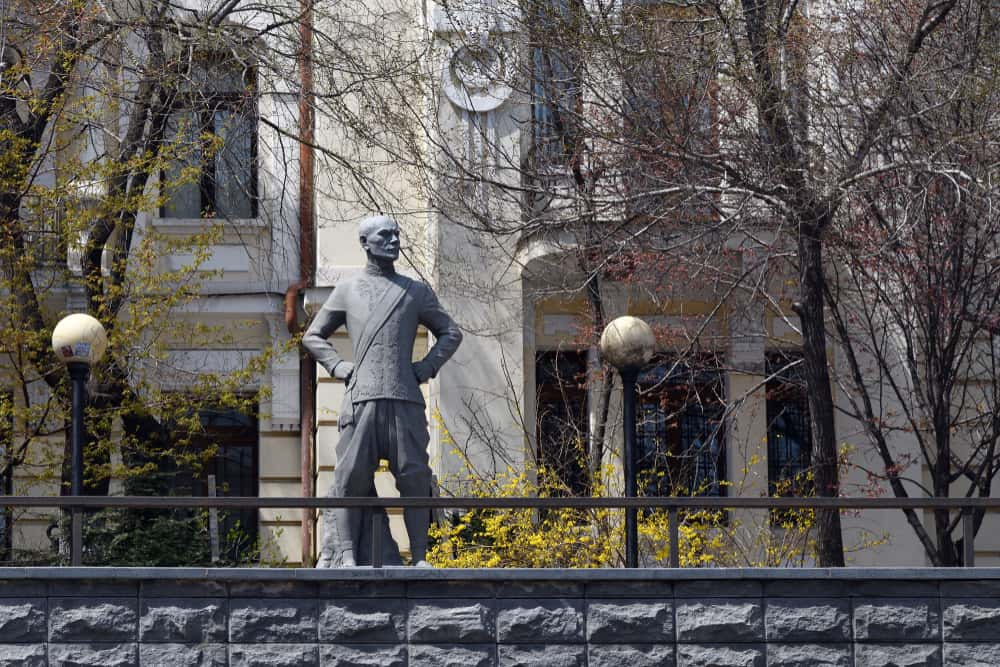 Shutterstock
Shutterstock

